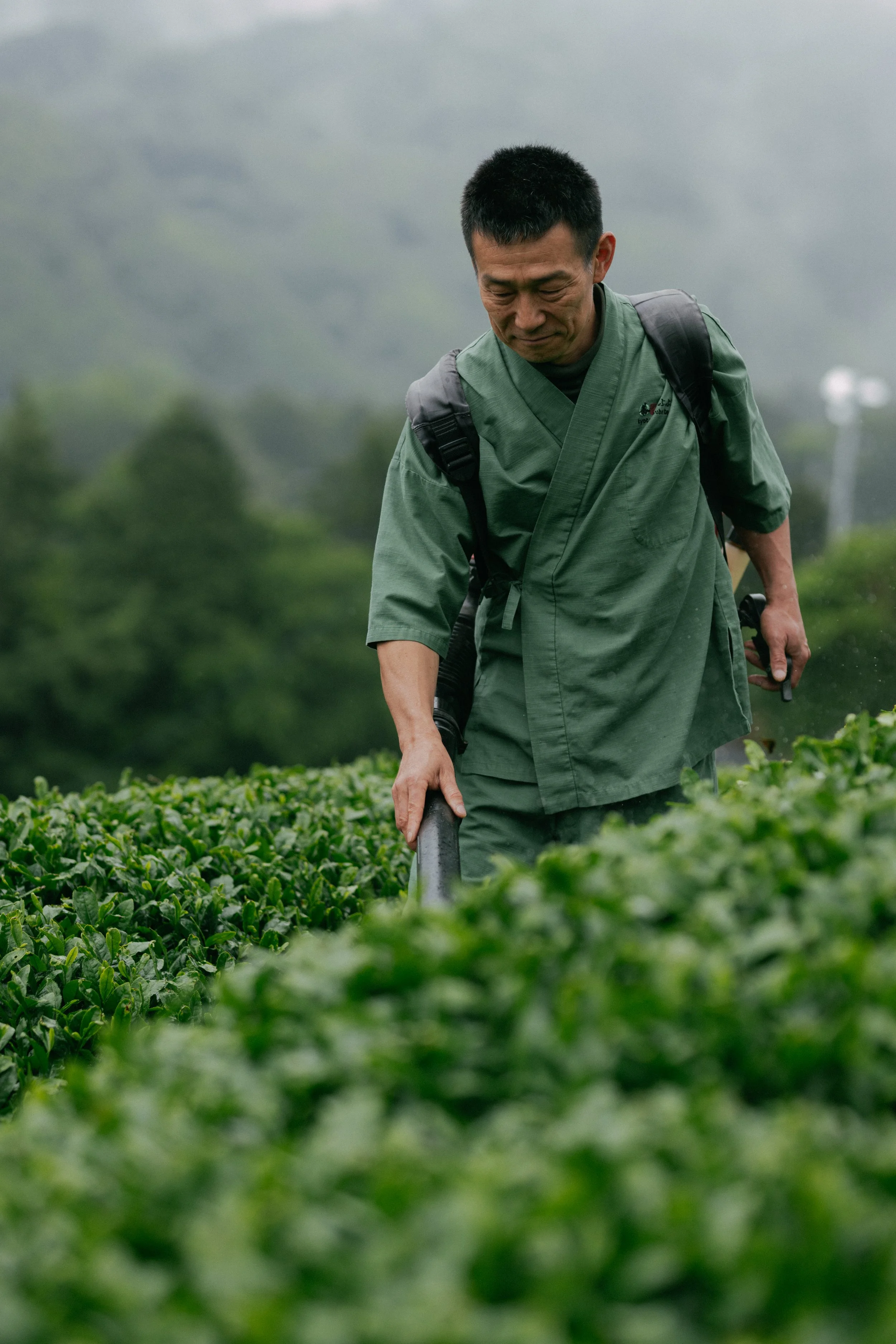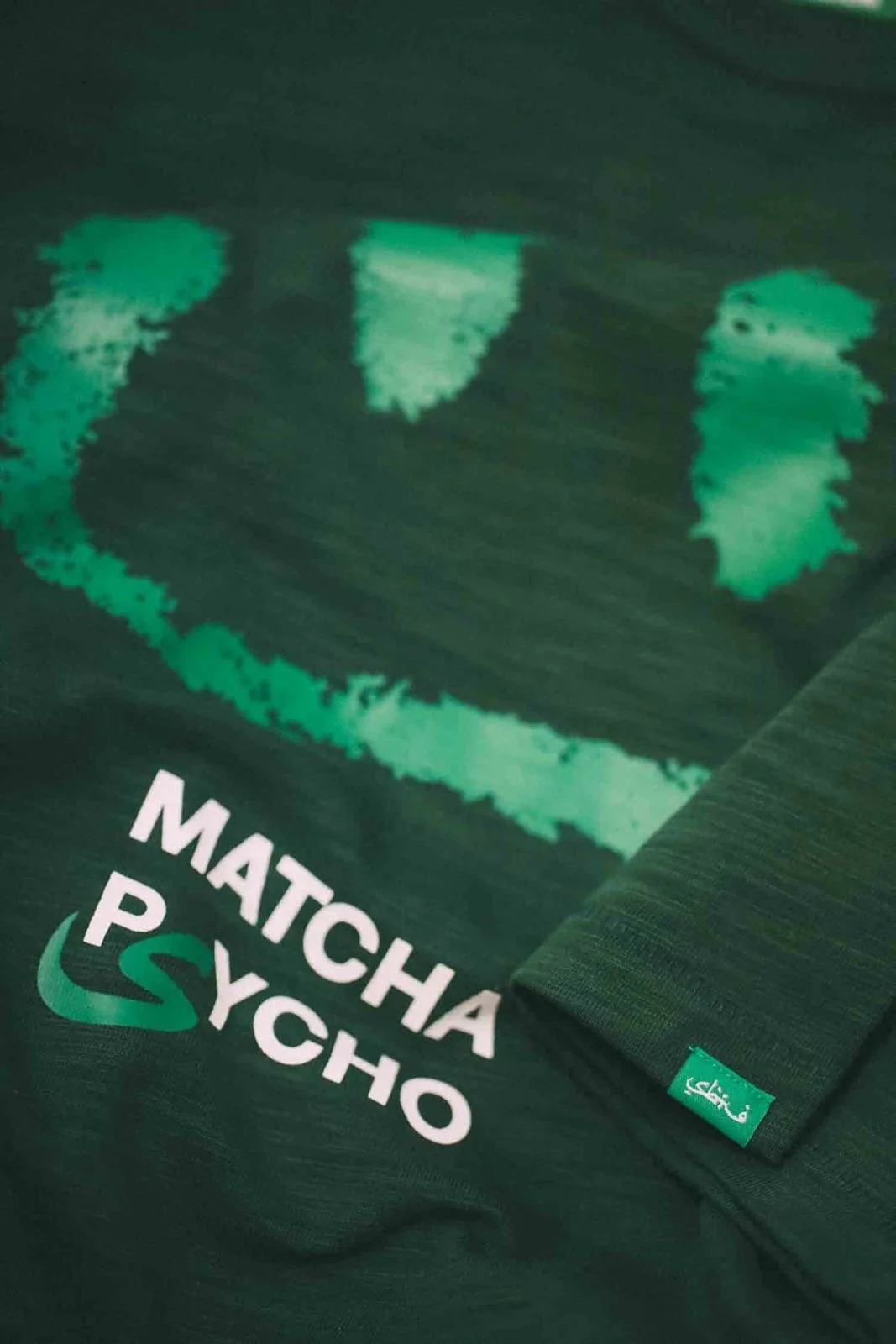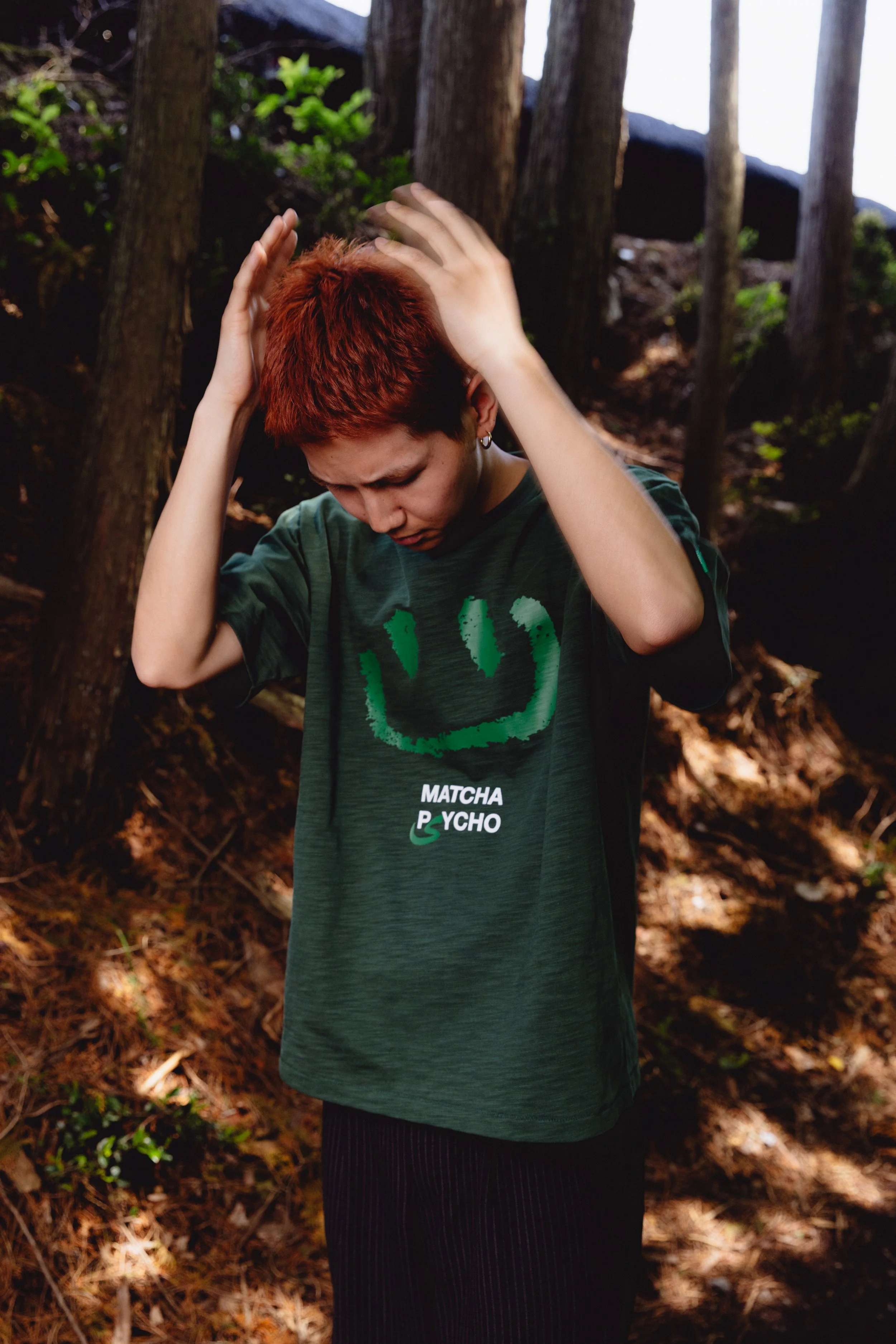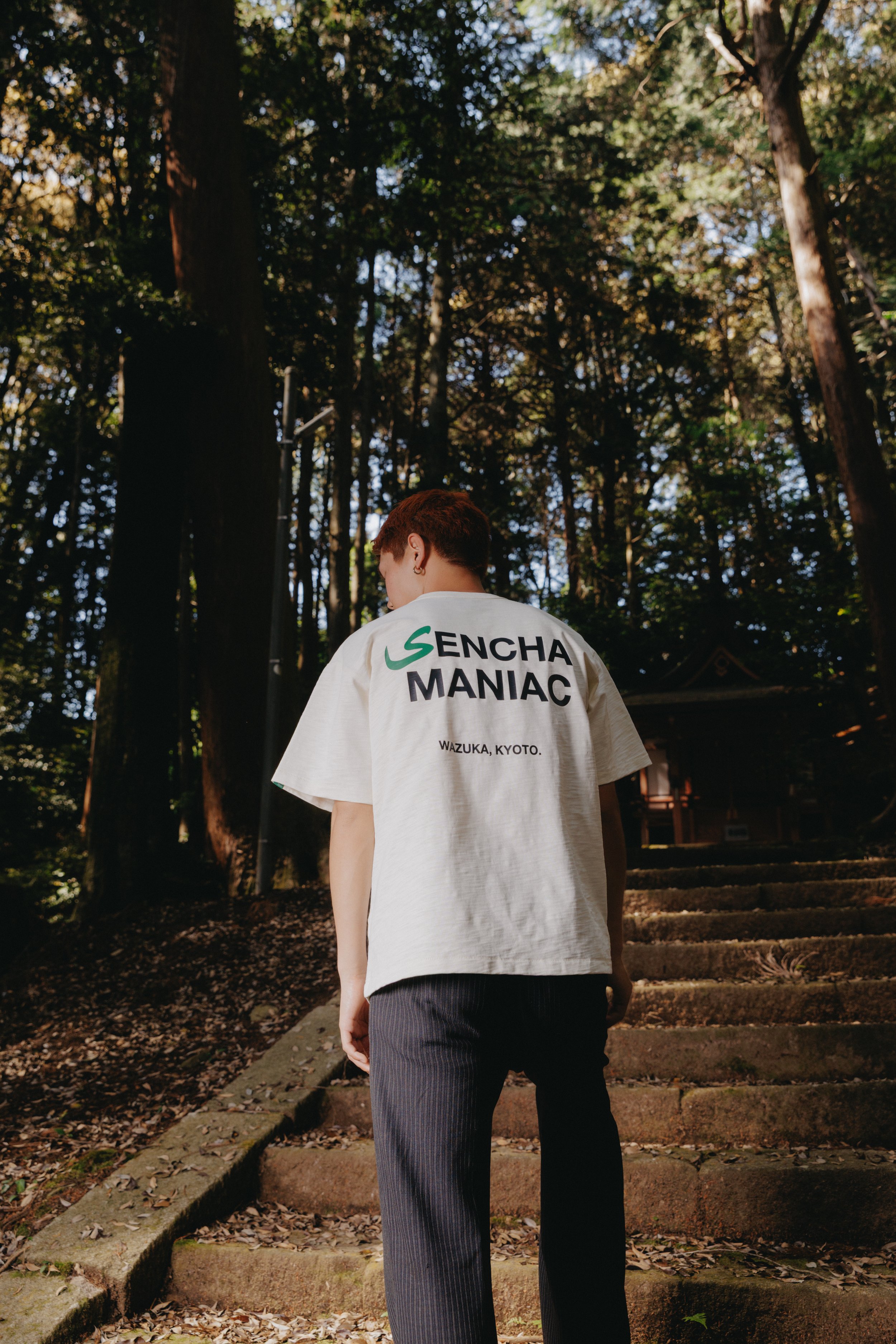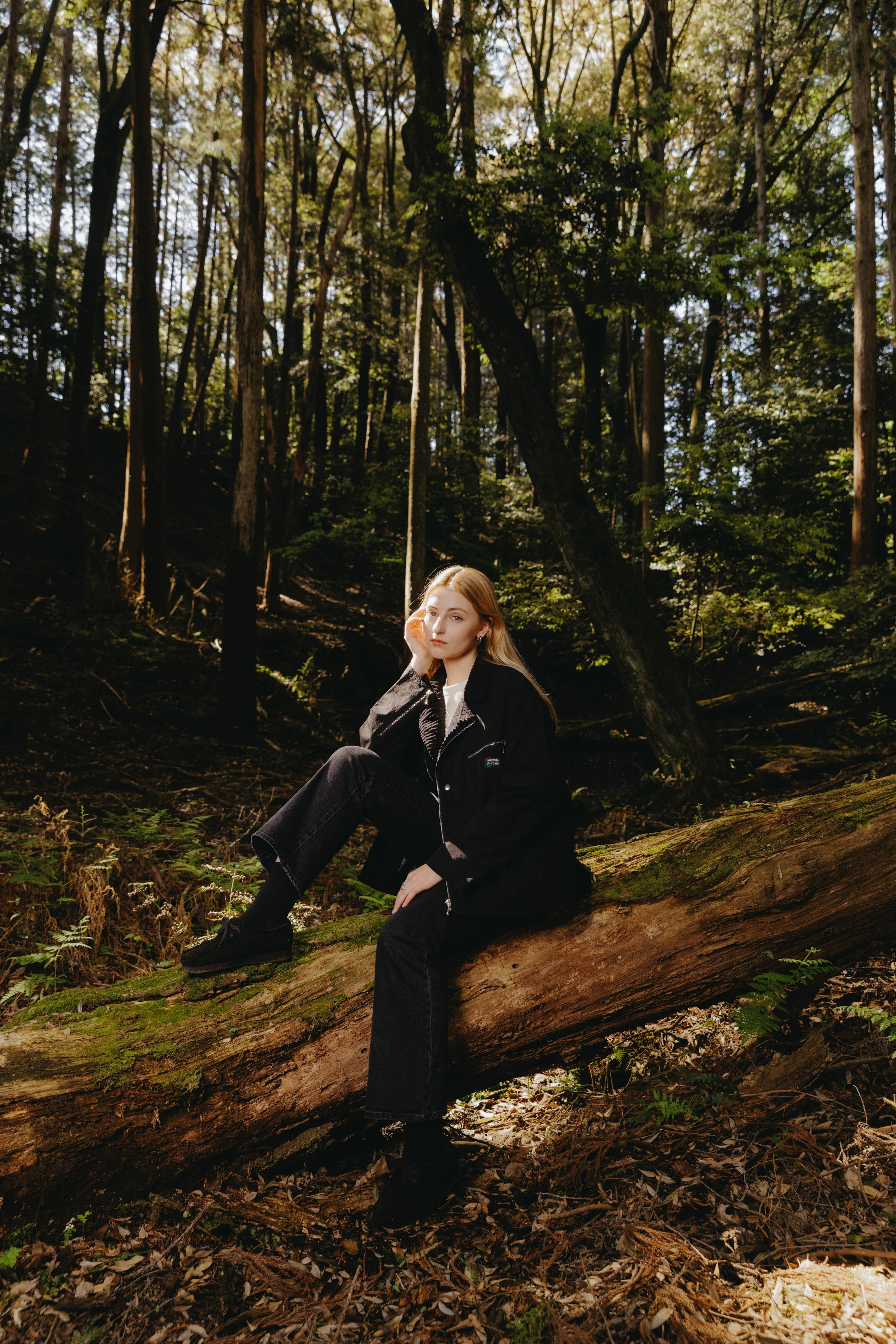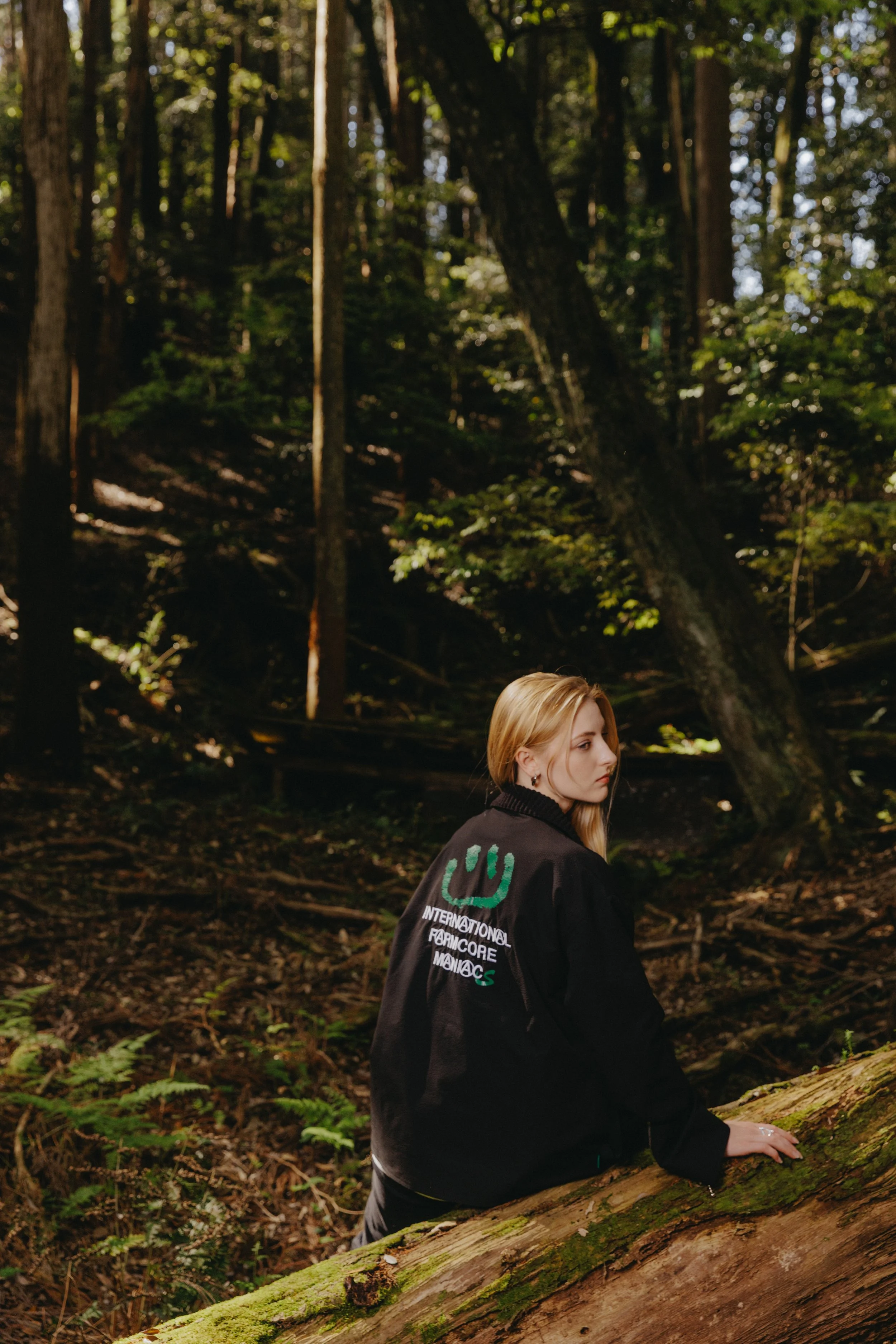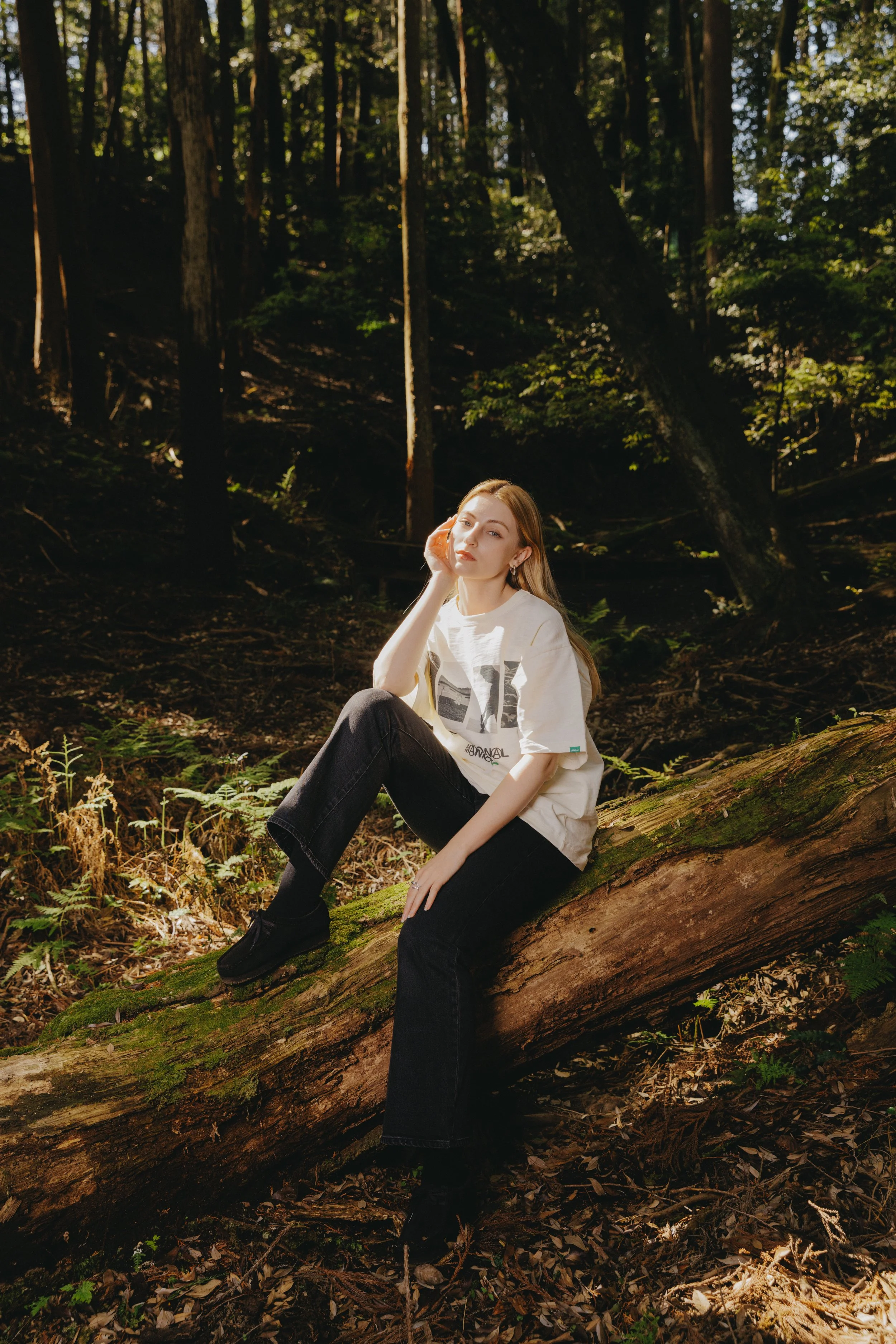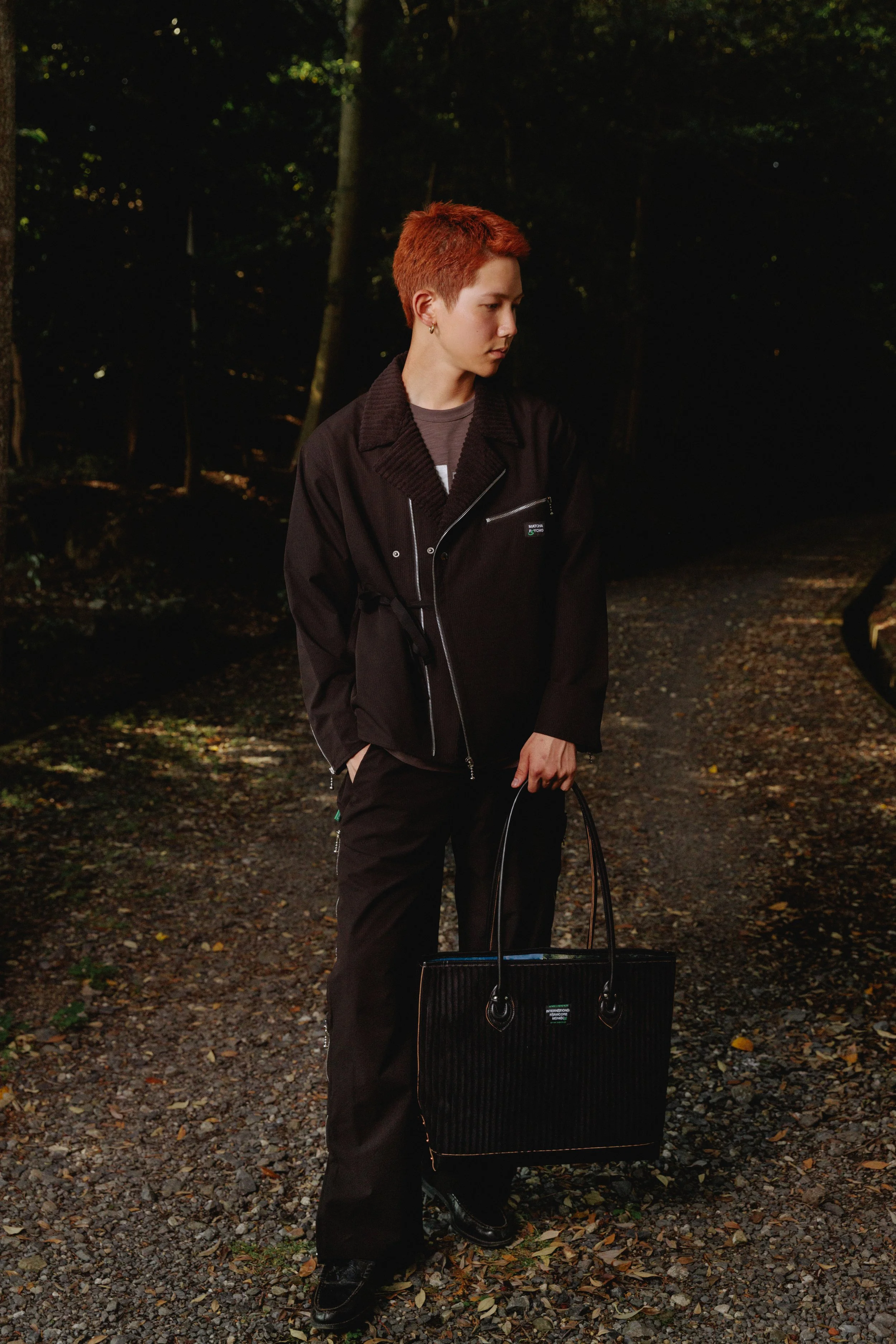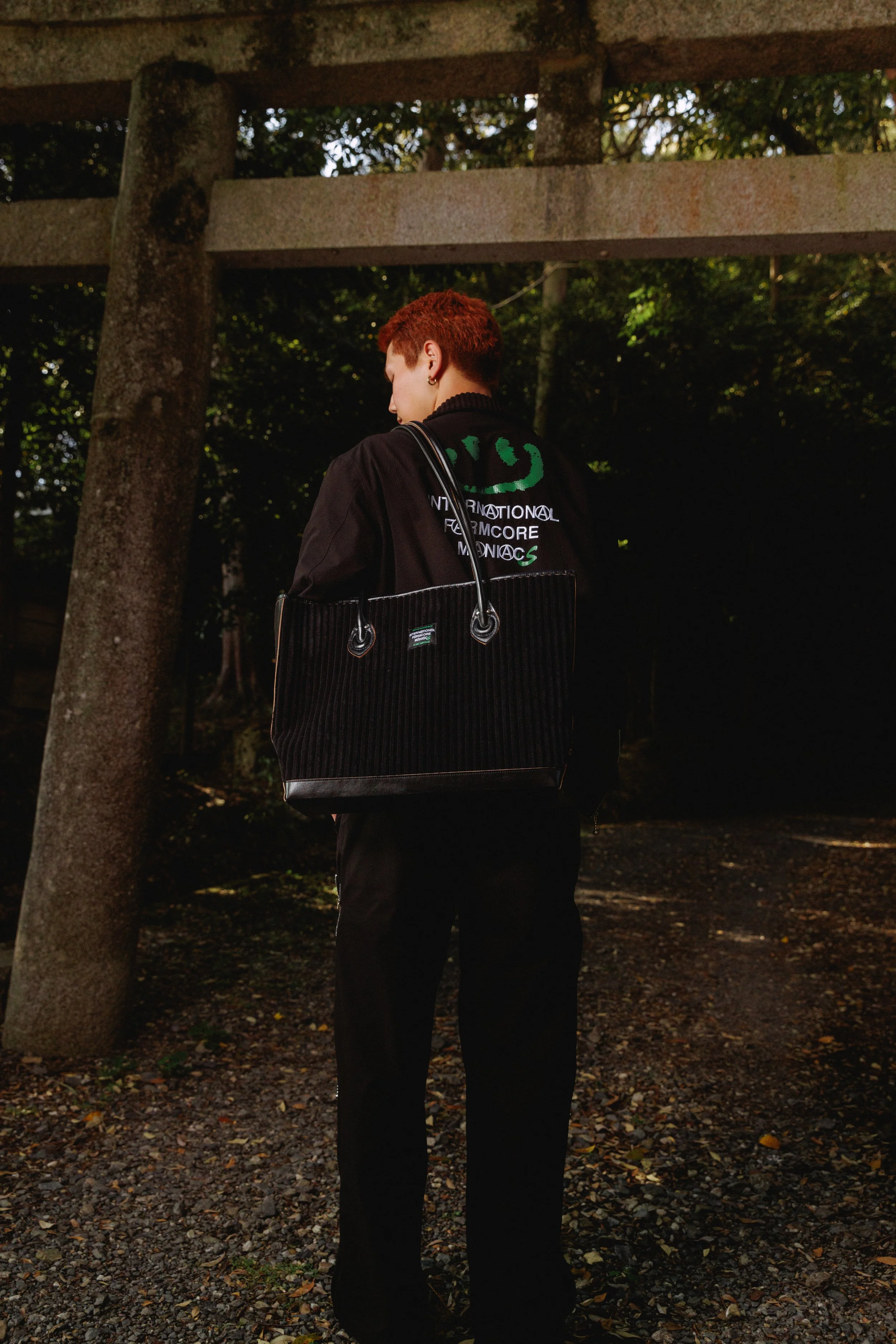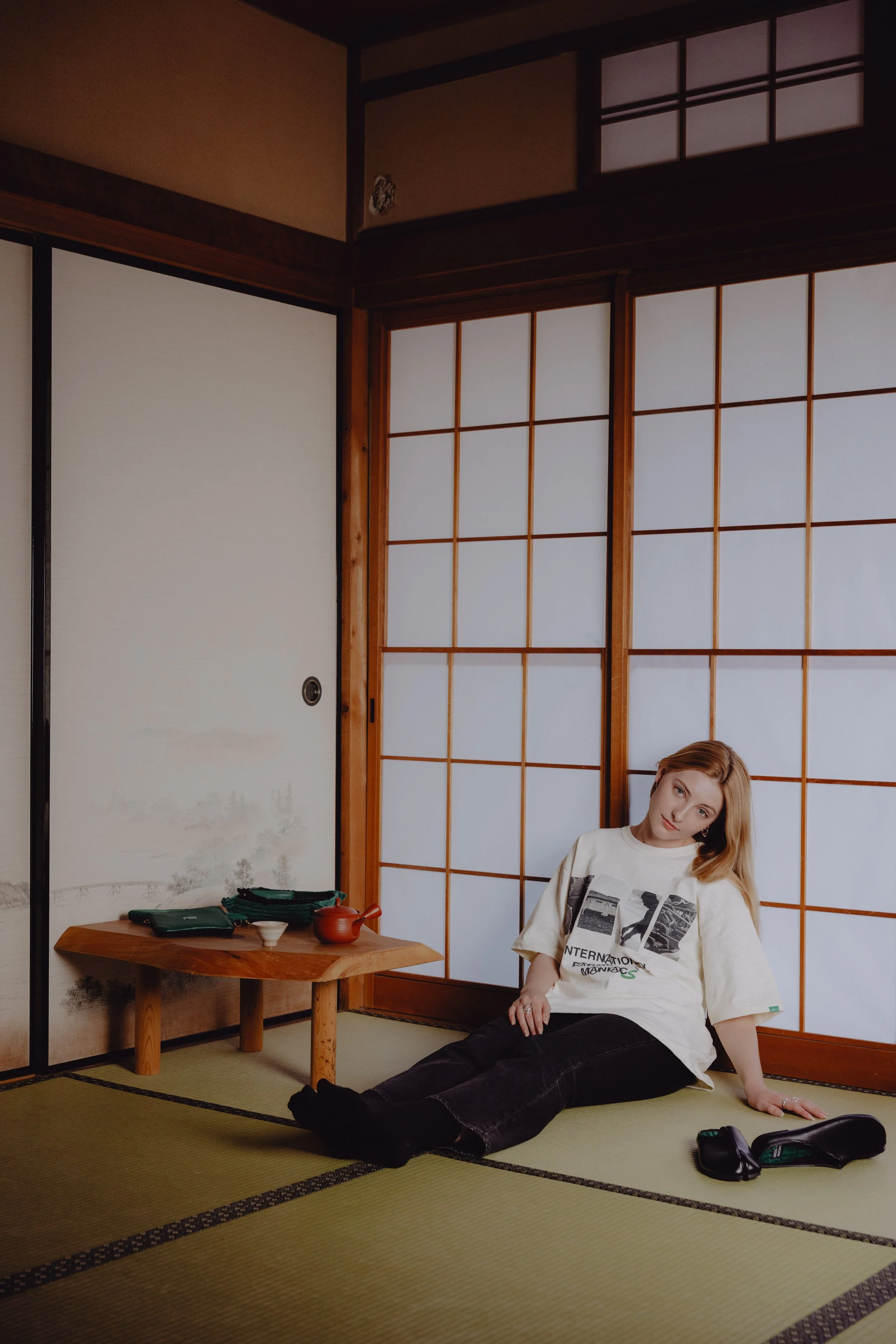“Matcha Psycho” — Wearable Postcards from Wazuka, Kyoto
In January, I went to Obubu Farms in Wazuka with Chooee, Kenji, Sabrina, and Gabriel. It was meant to be research, but it turned into something more — a quiet revelation. The land, the routine, the people — everything moved with intention.

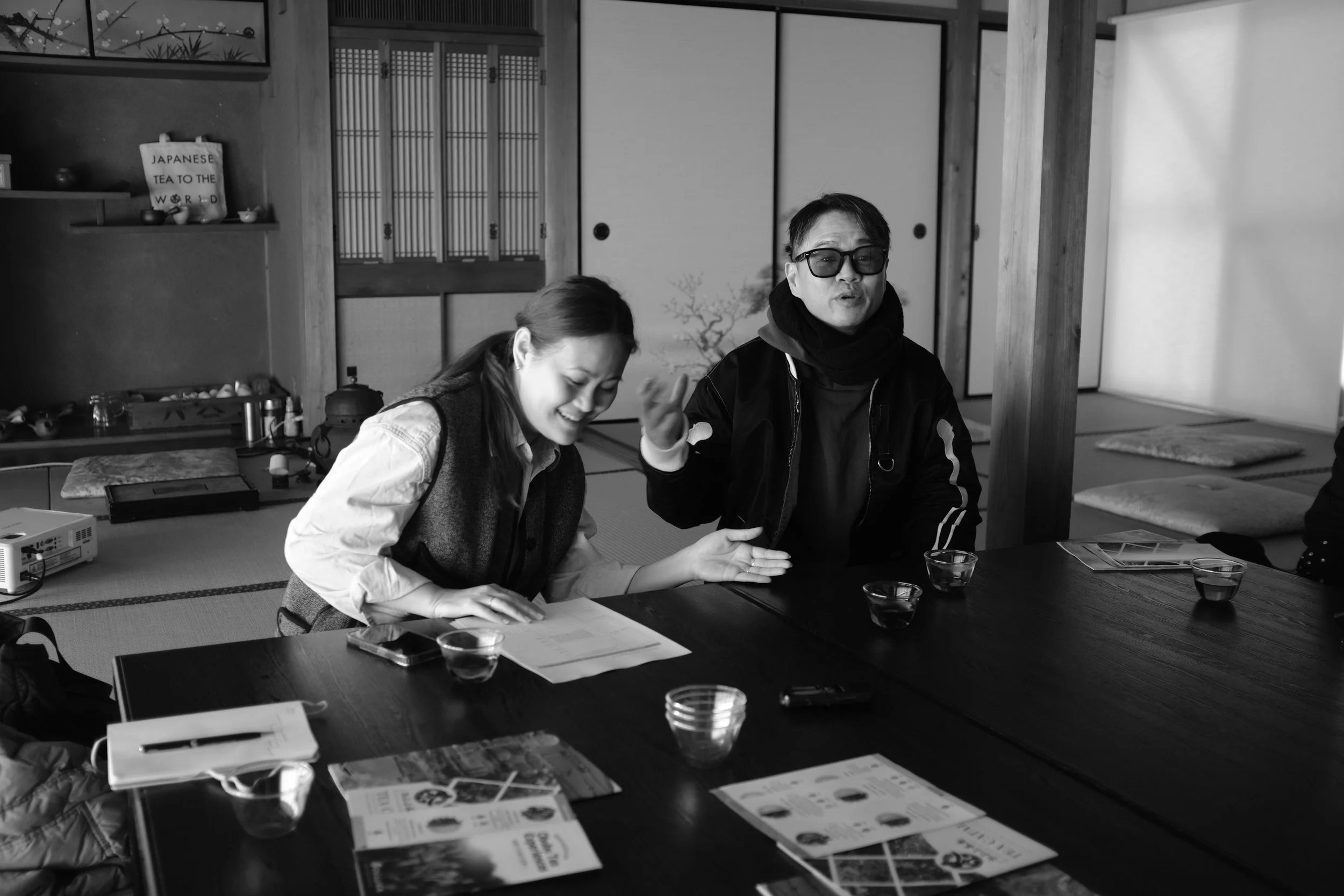

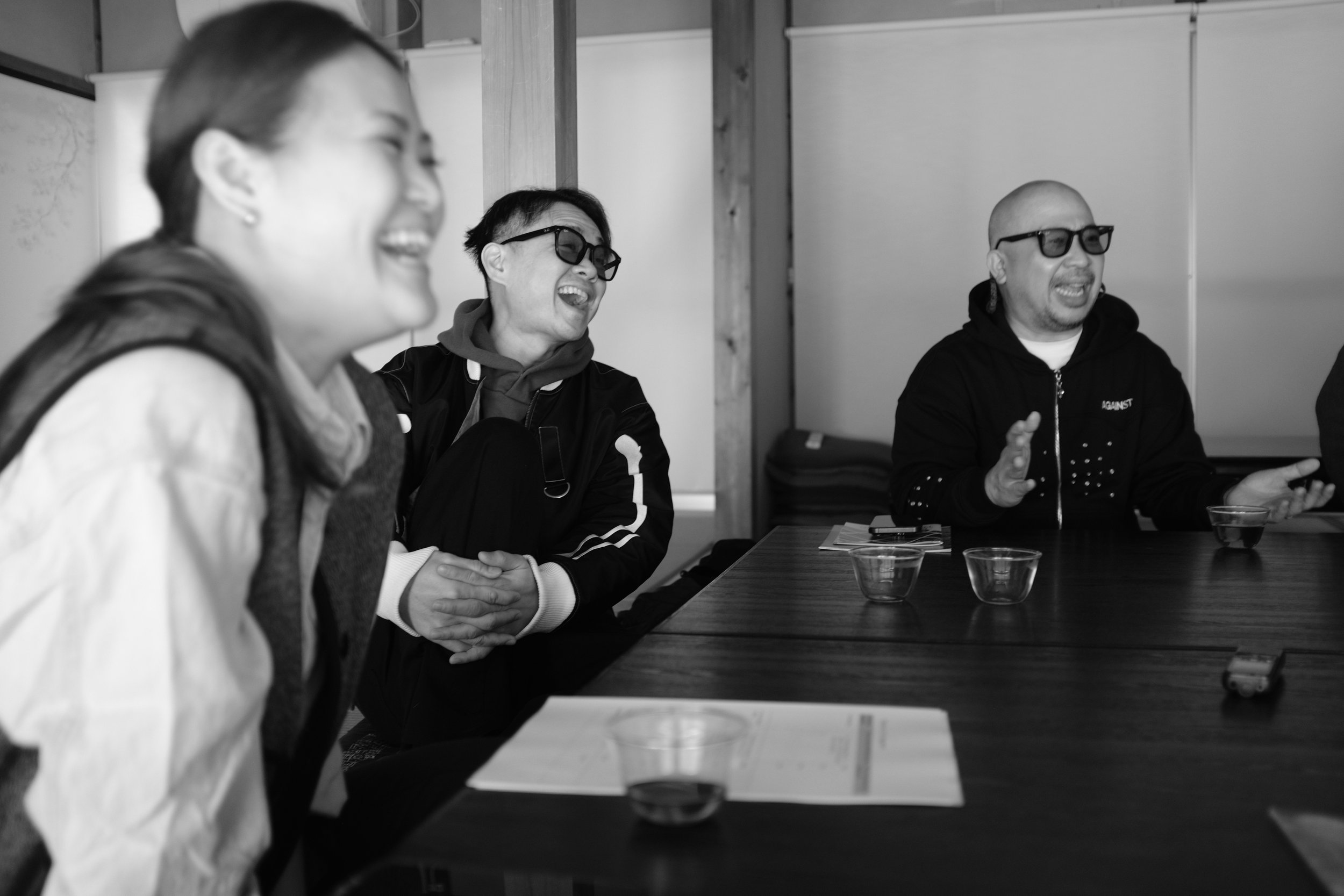
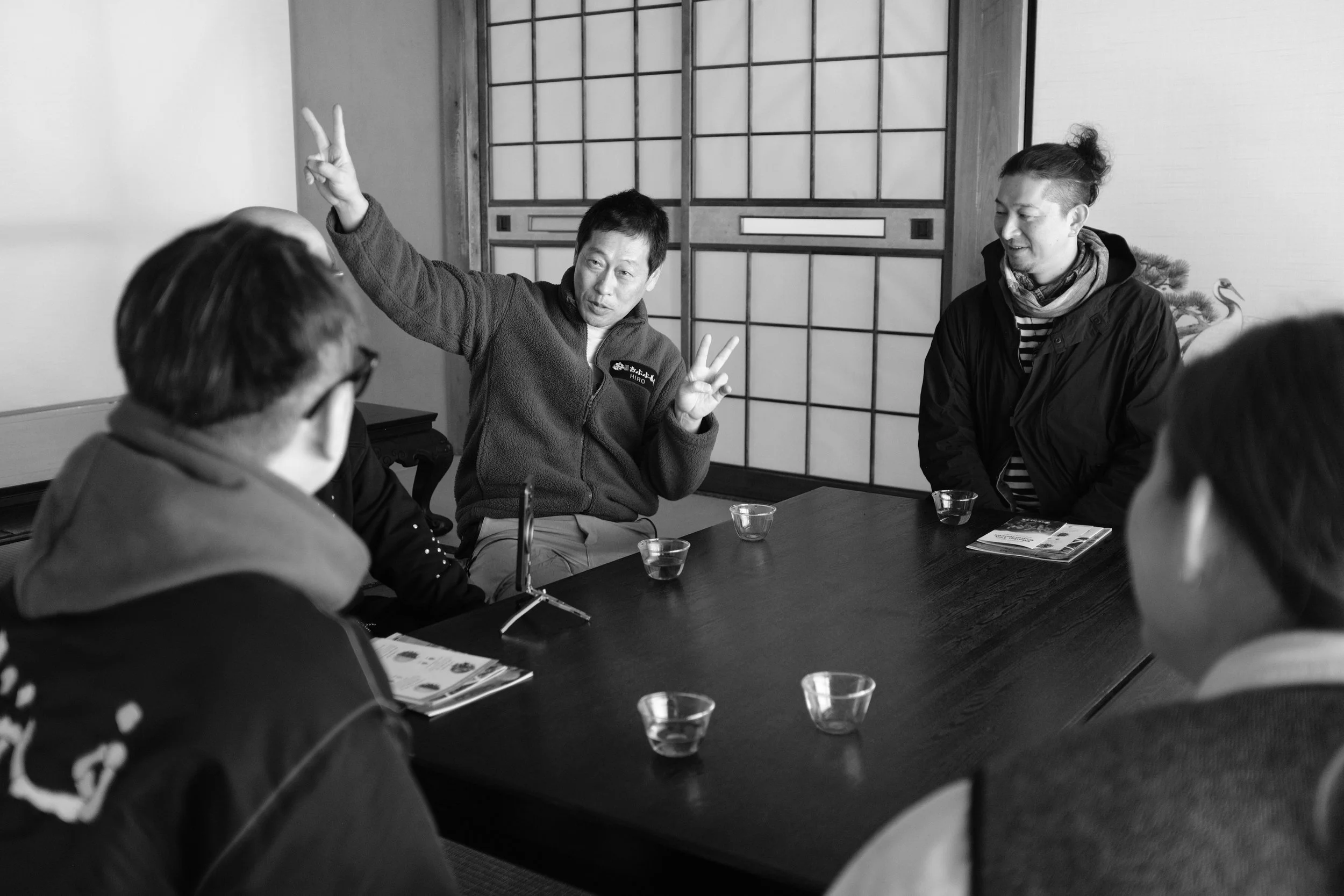
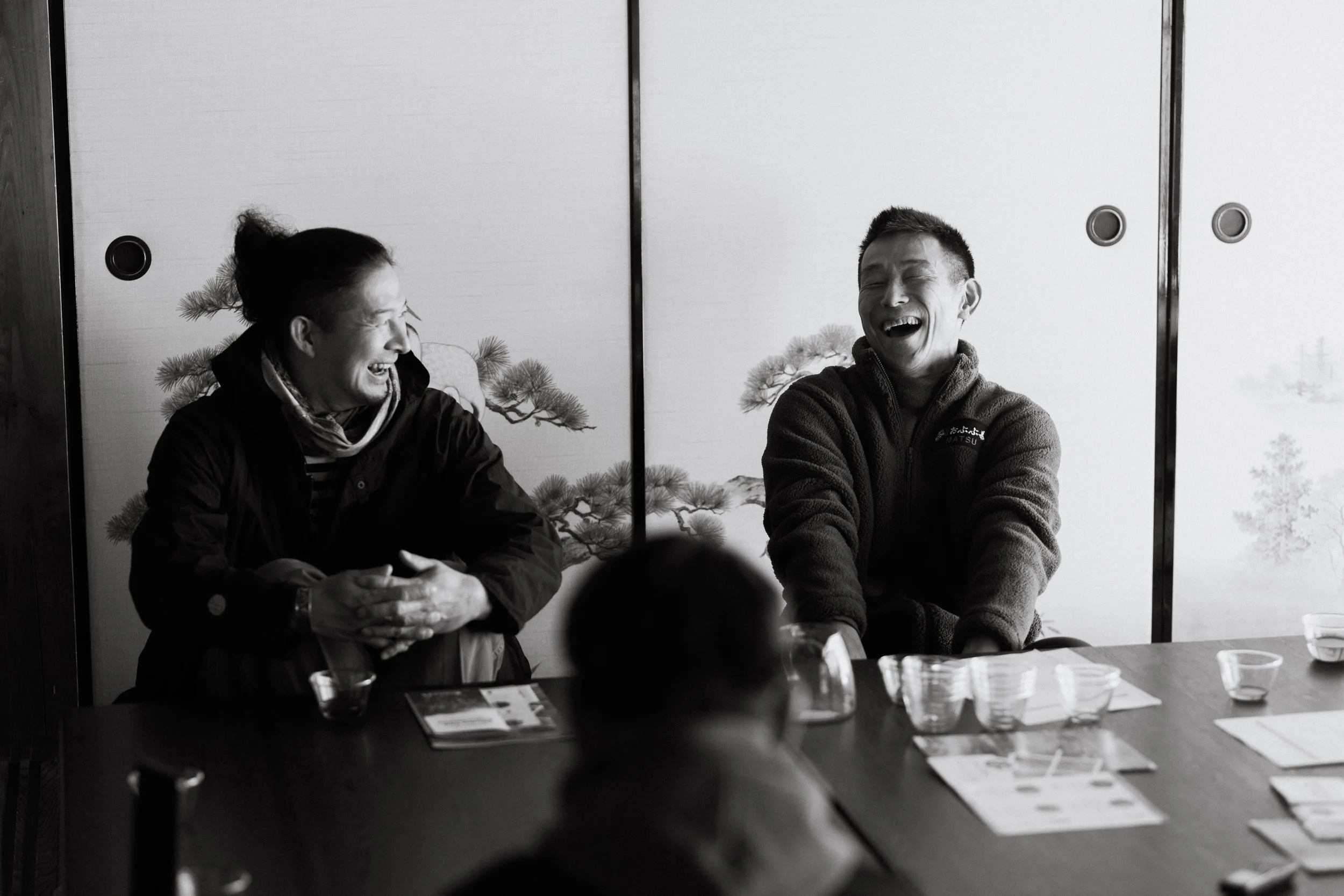
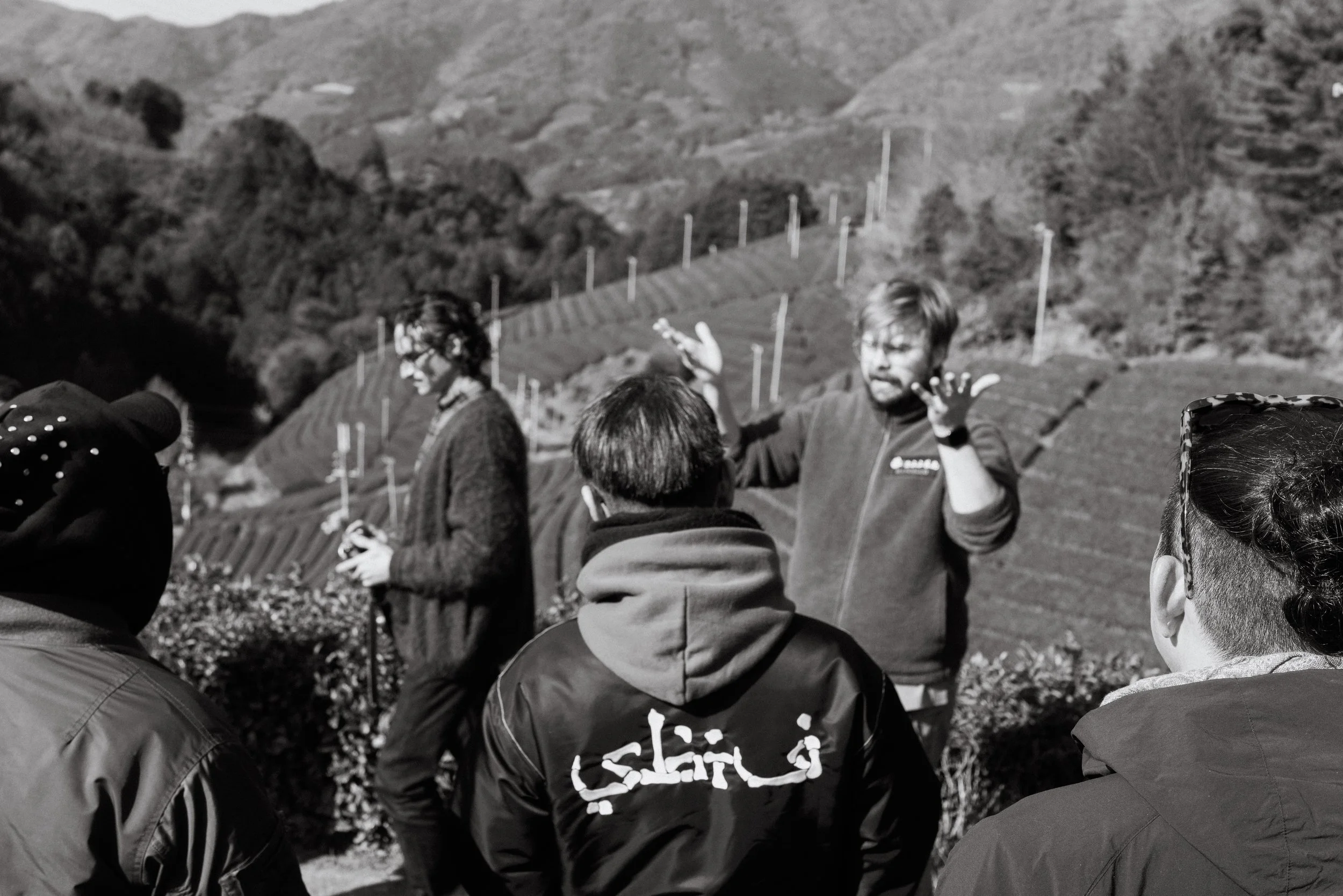
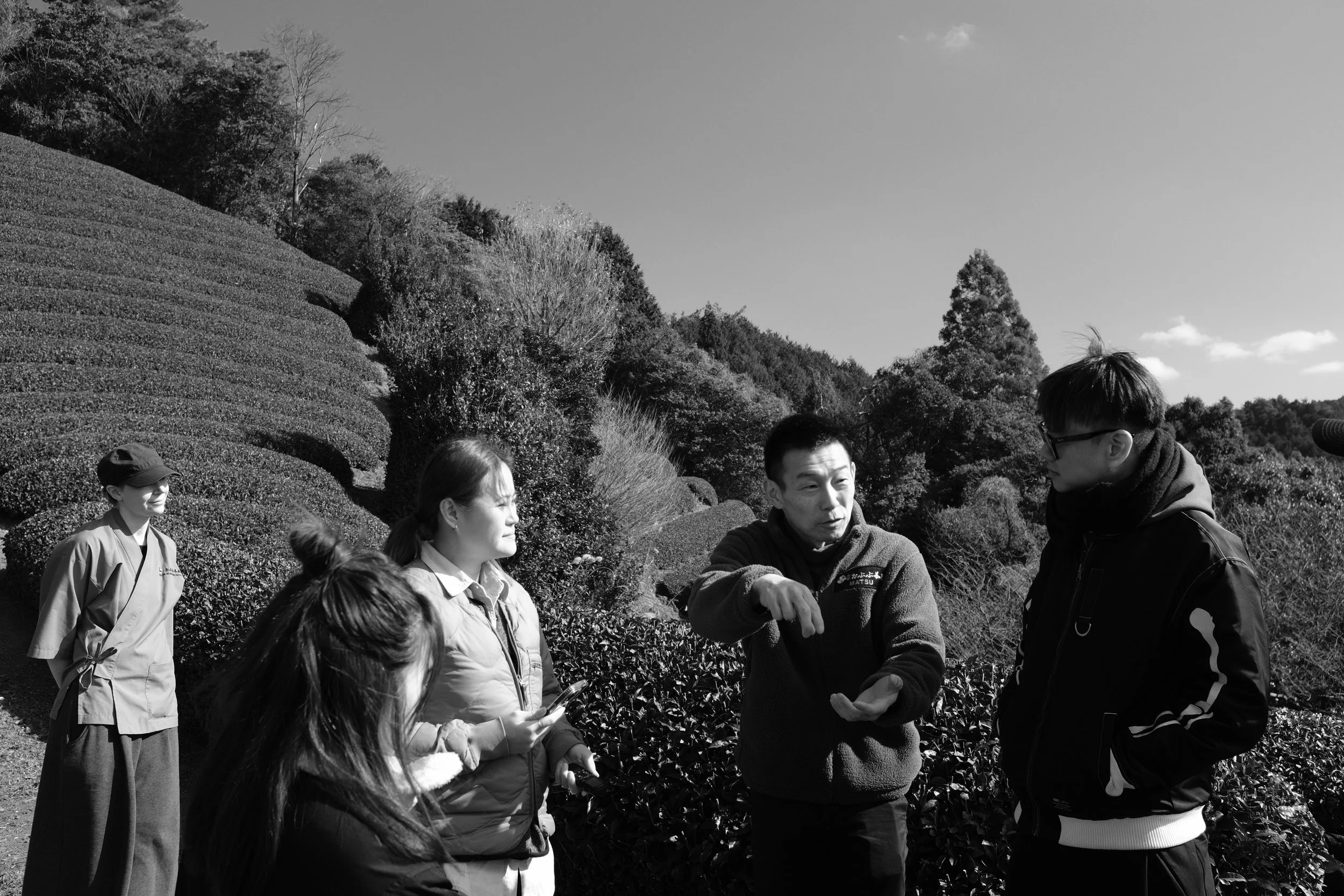


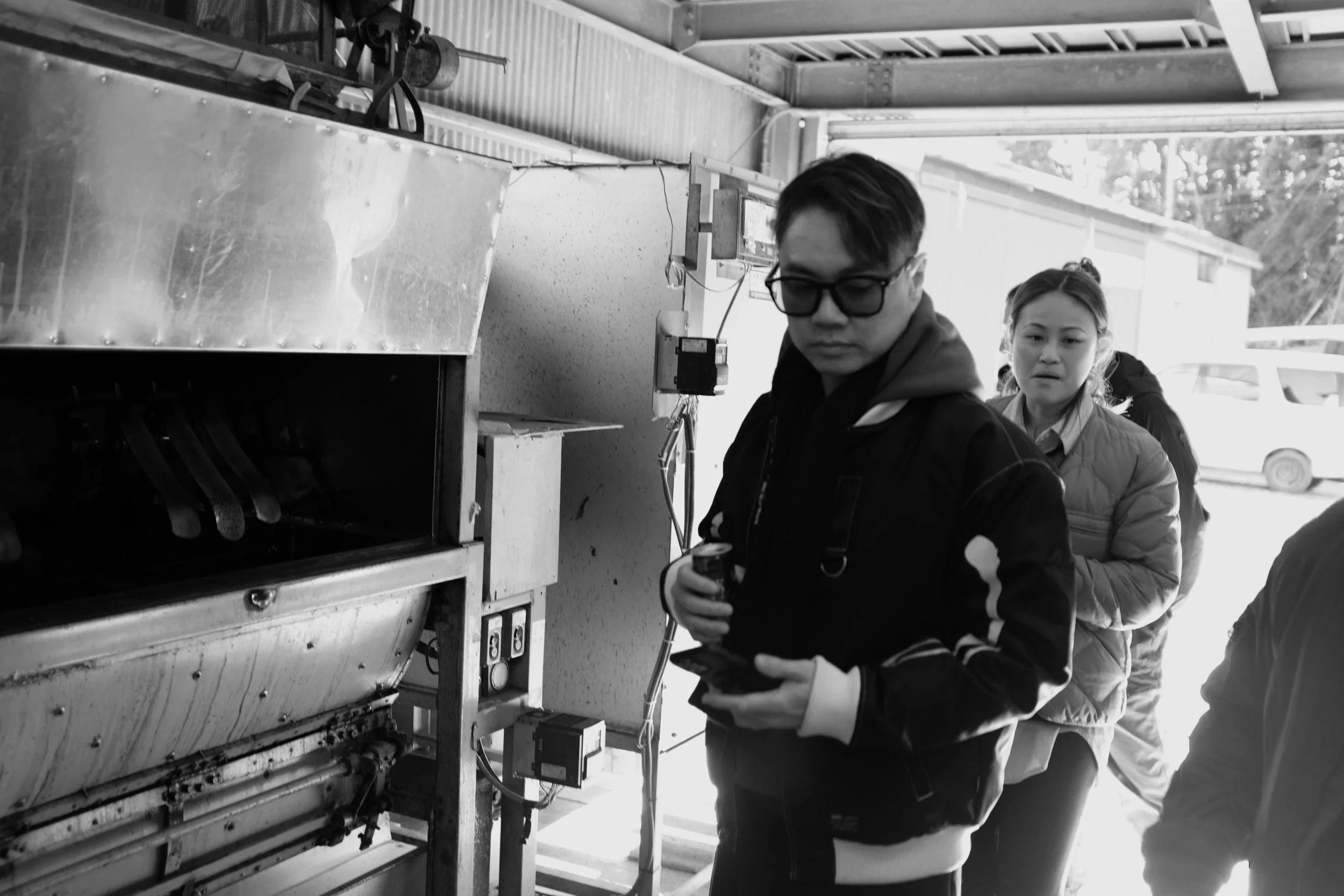
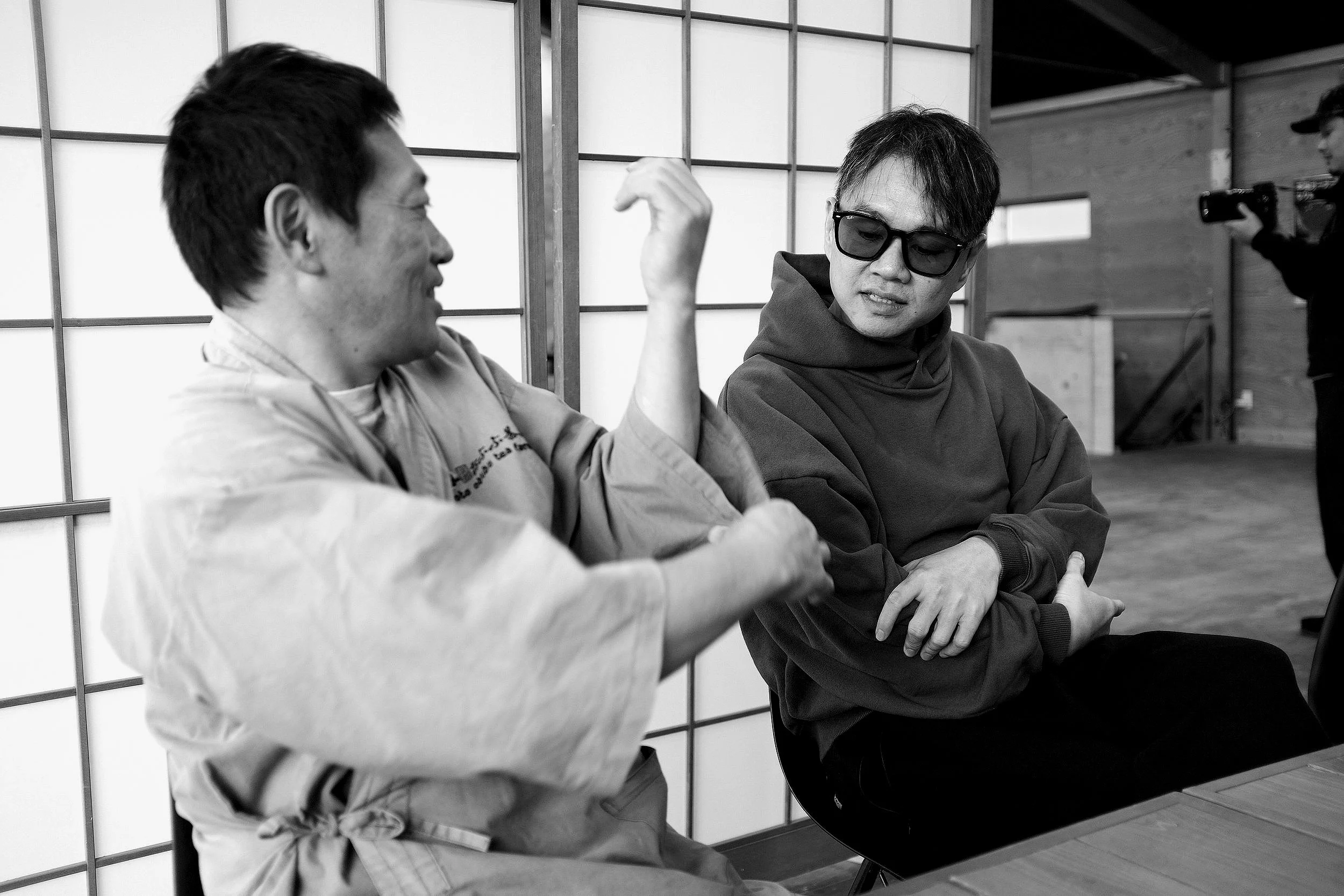
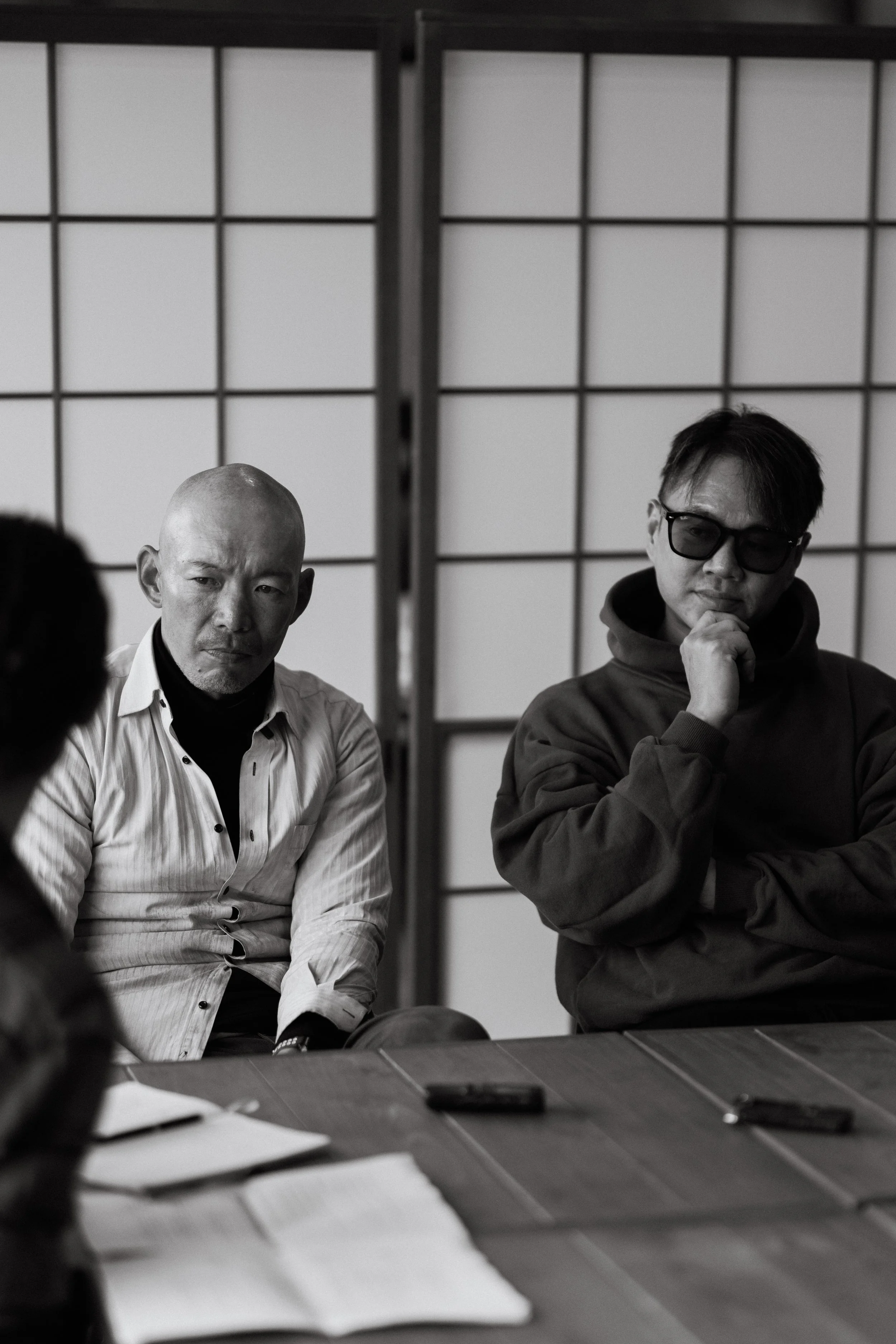
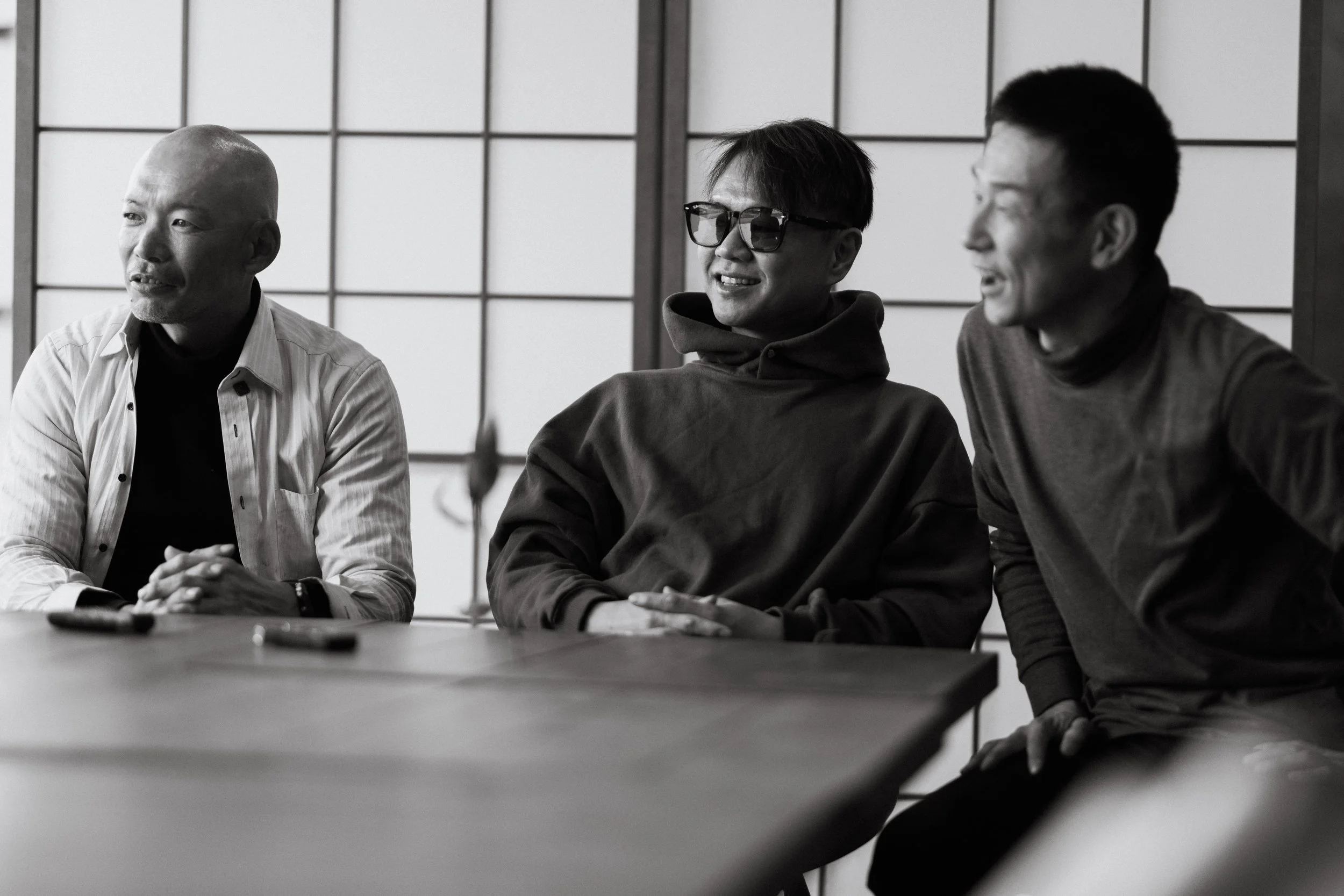
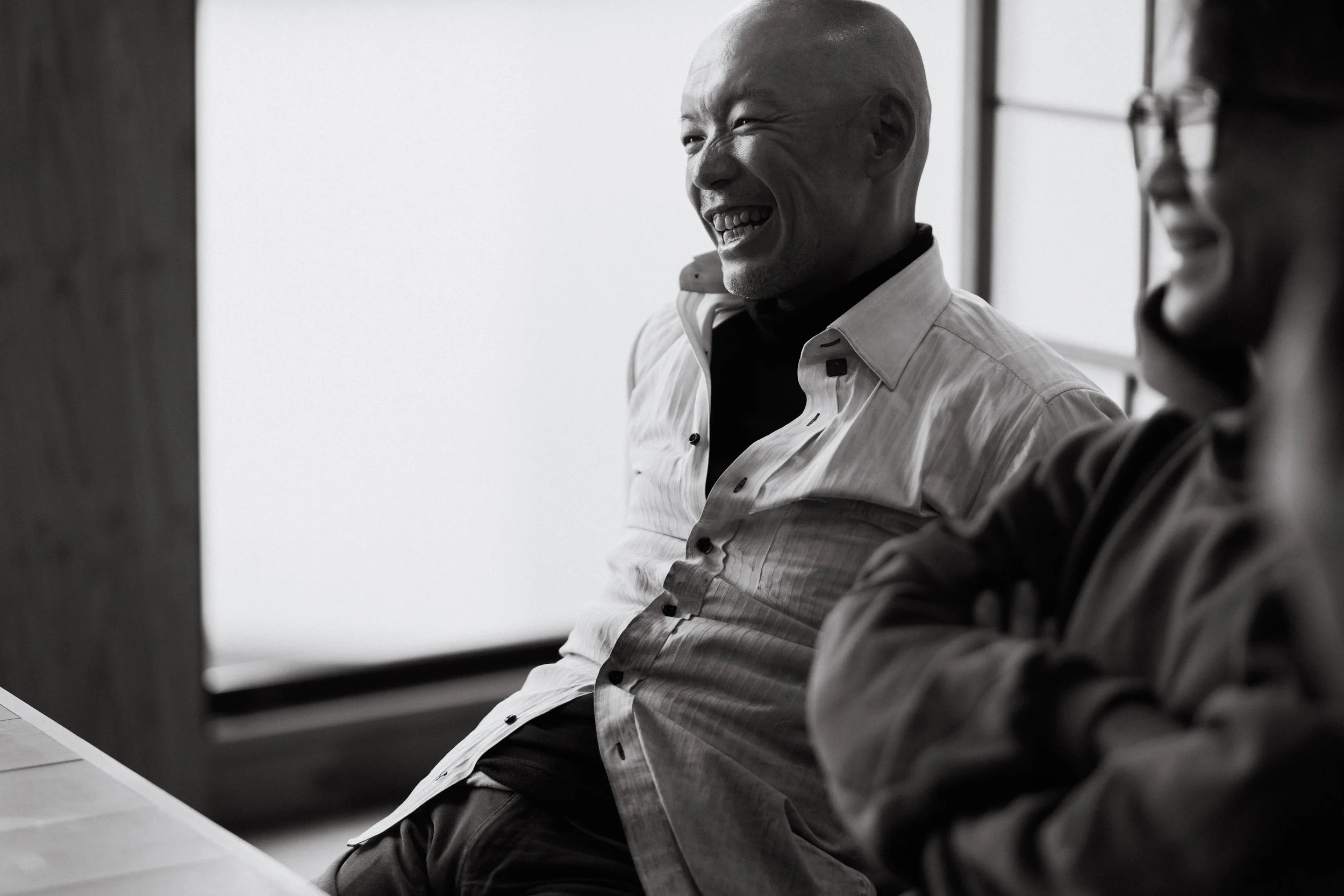
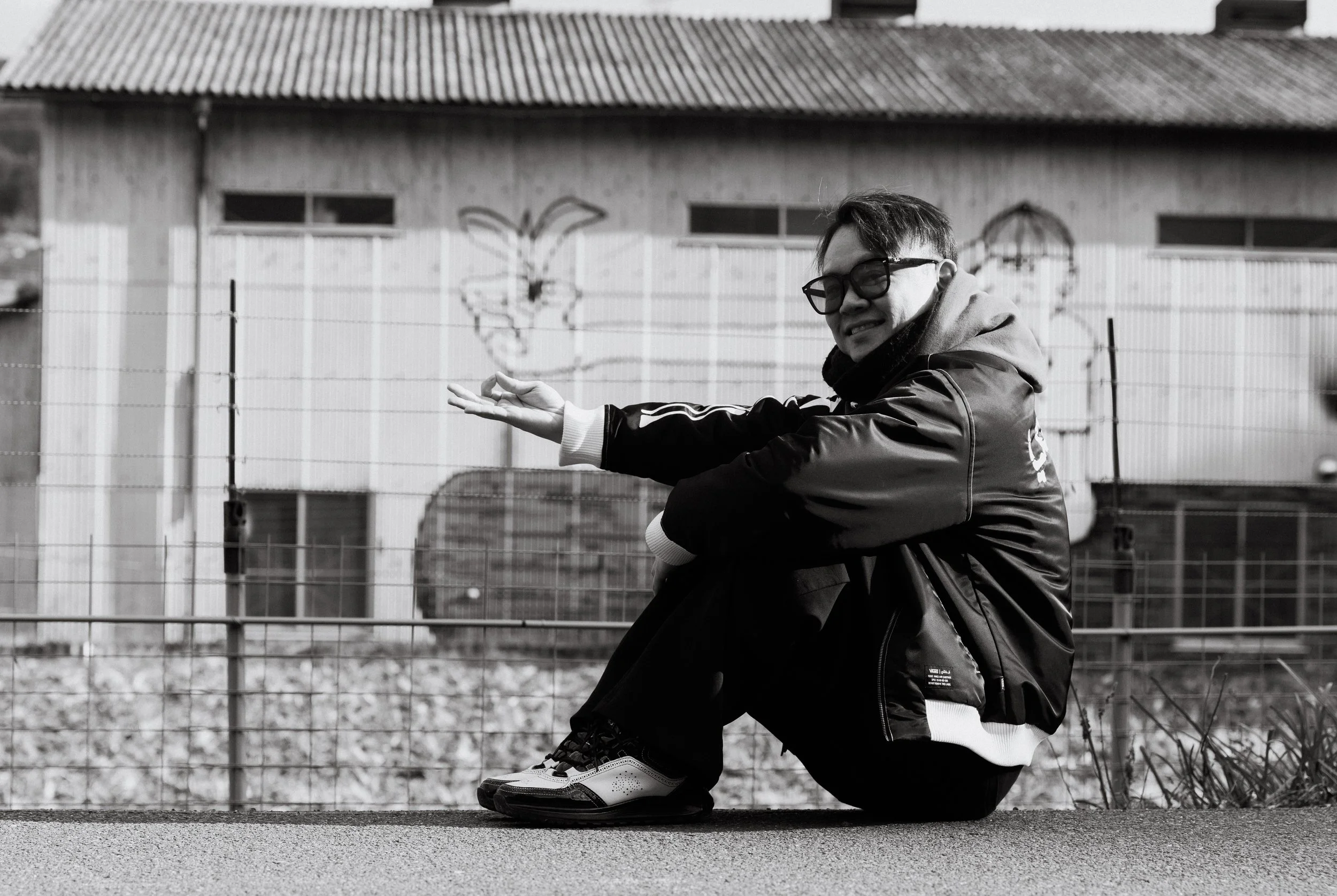
The patterns stuck with me. Neatly planted rows of matcha bushes from a drone’s view reminded me of corduroy. That observation became a thread — literally. I reinterpreted that texture into 2.5 wale corduroy lapels for a workwear-blazer hybrid. The jacket shape references the samue, worn by the farmers every day, but it's crossed with a biker silhouette — built for Paris, rooted in Kyoto.
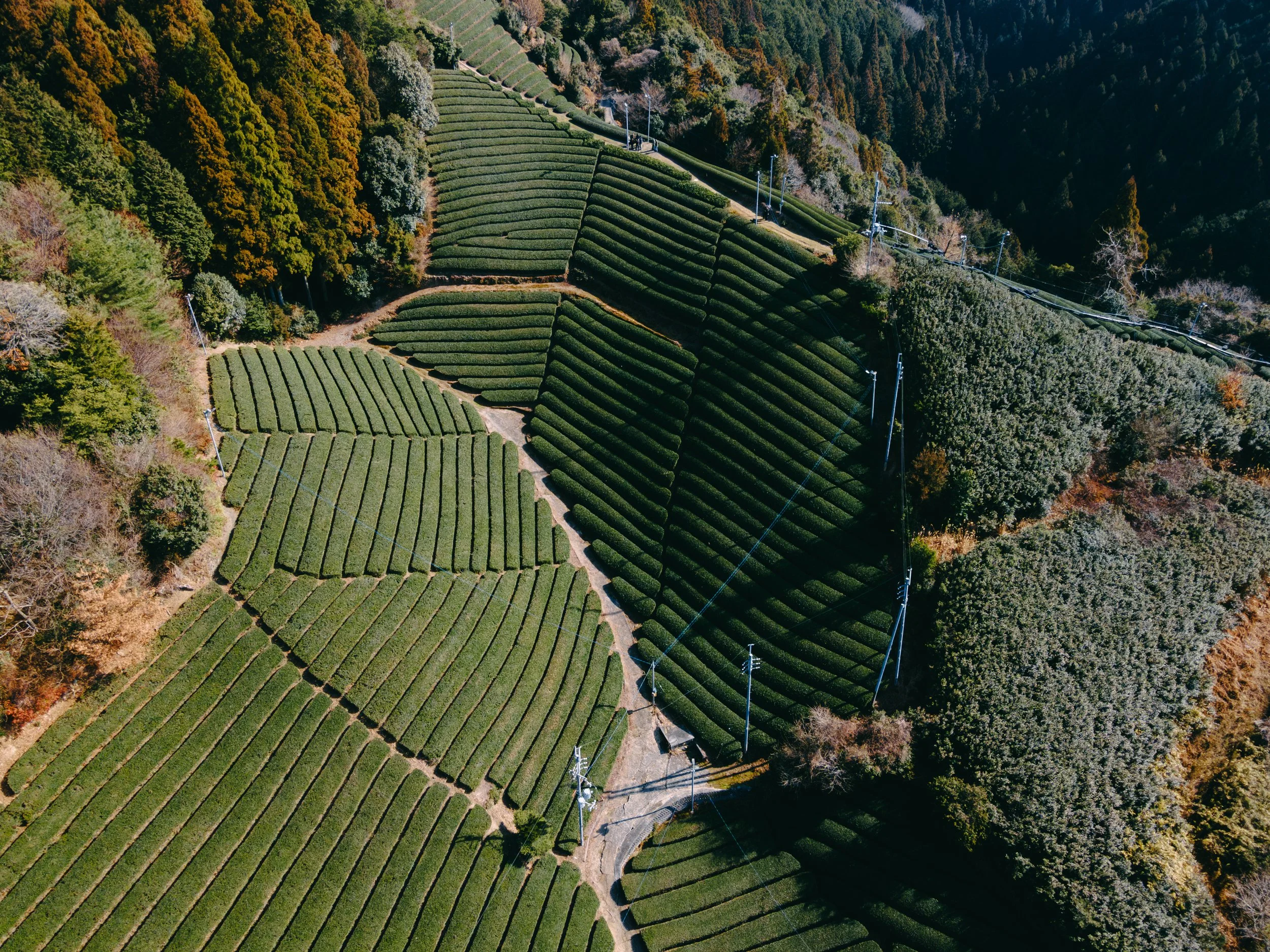
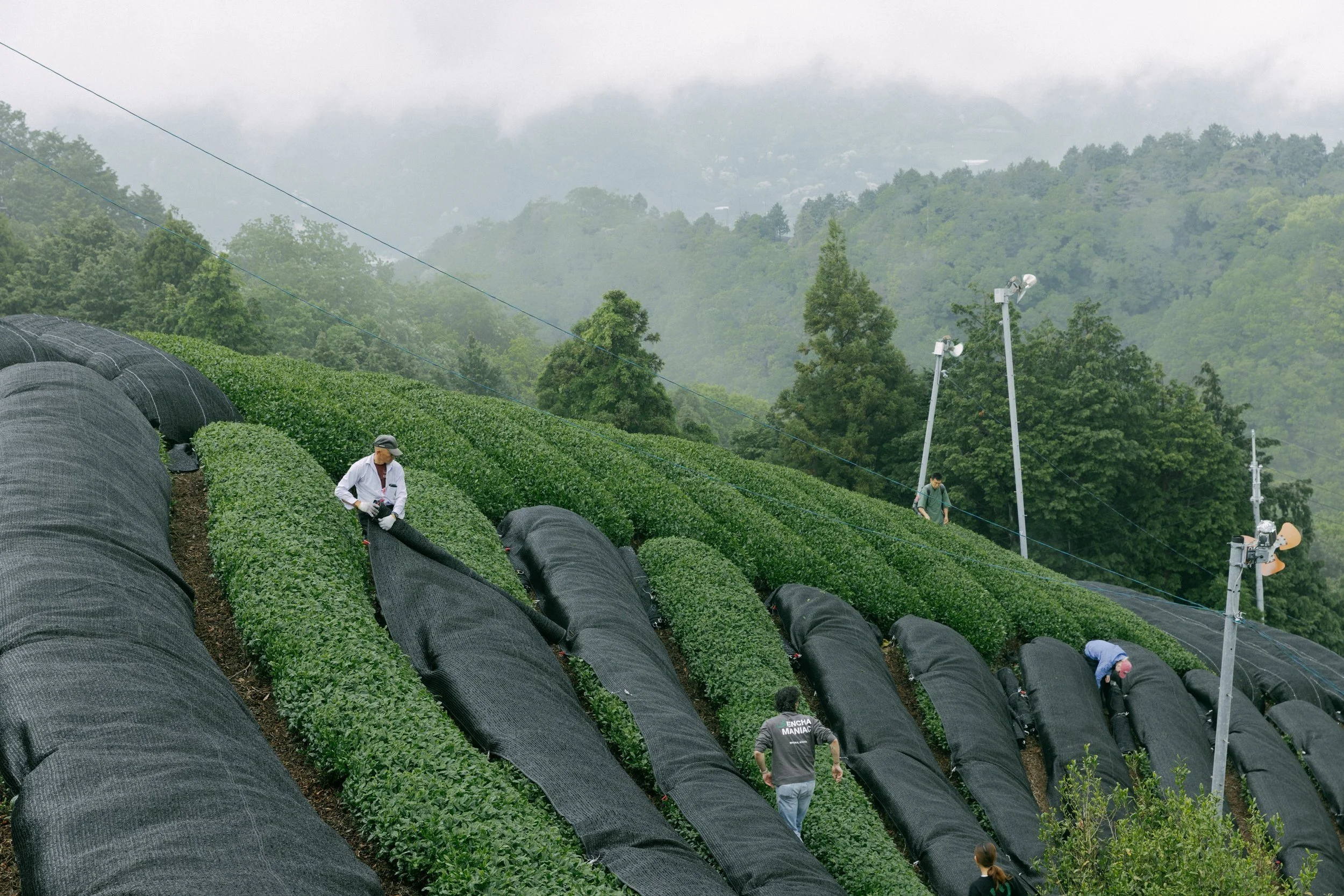
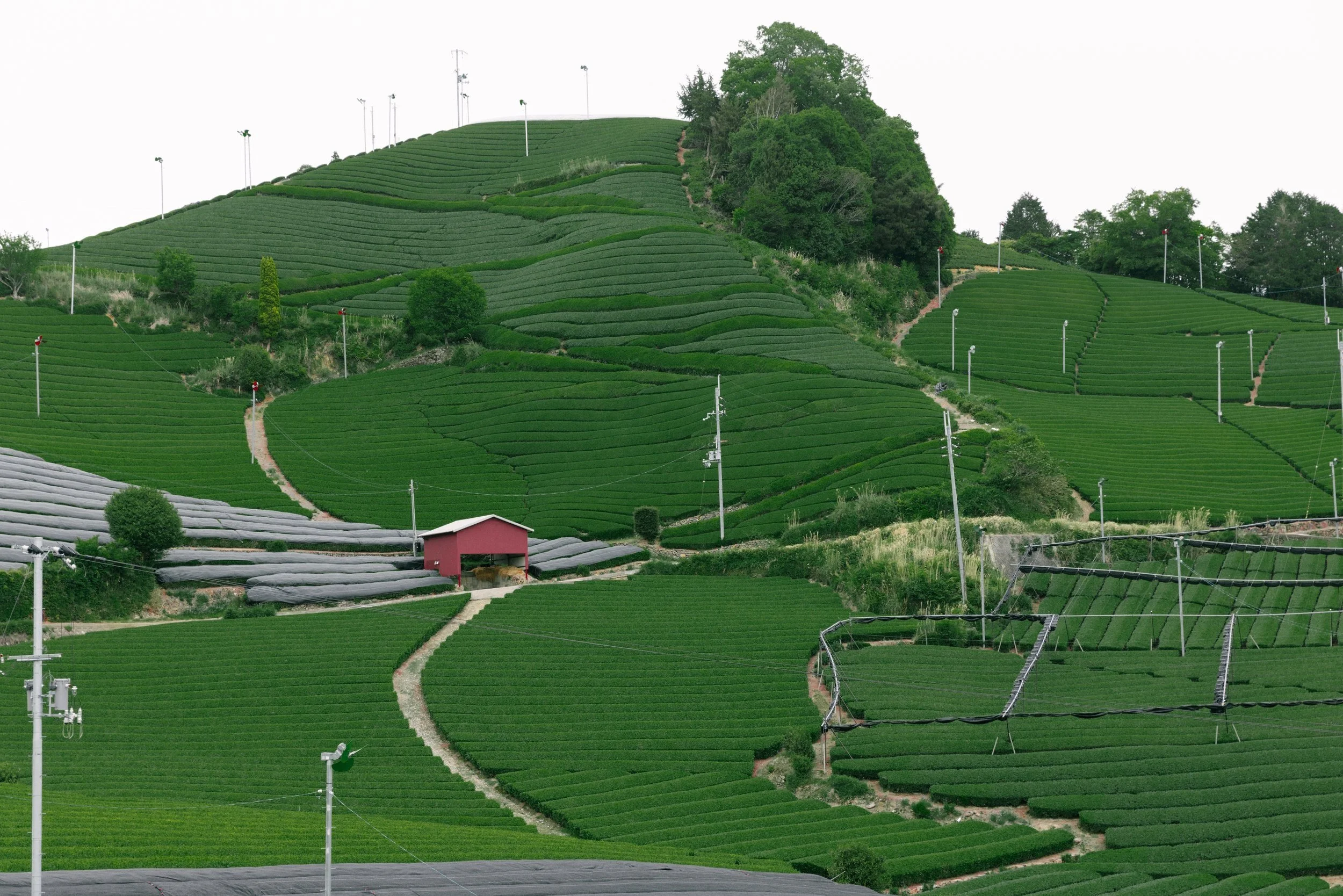

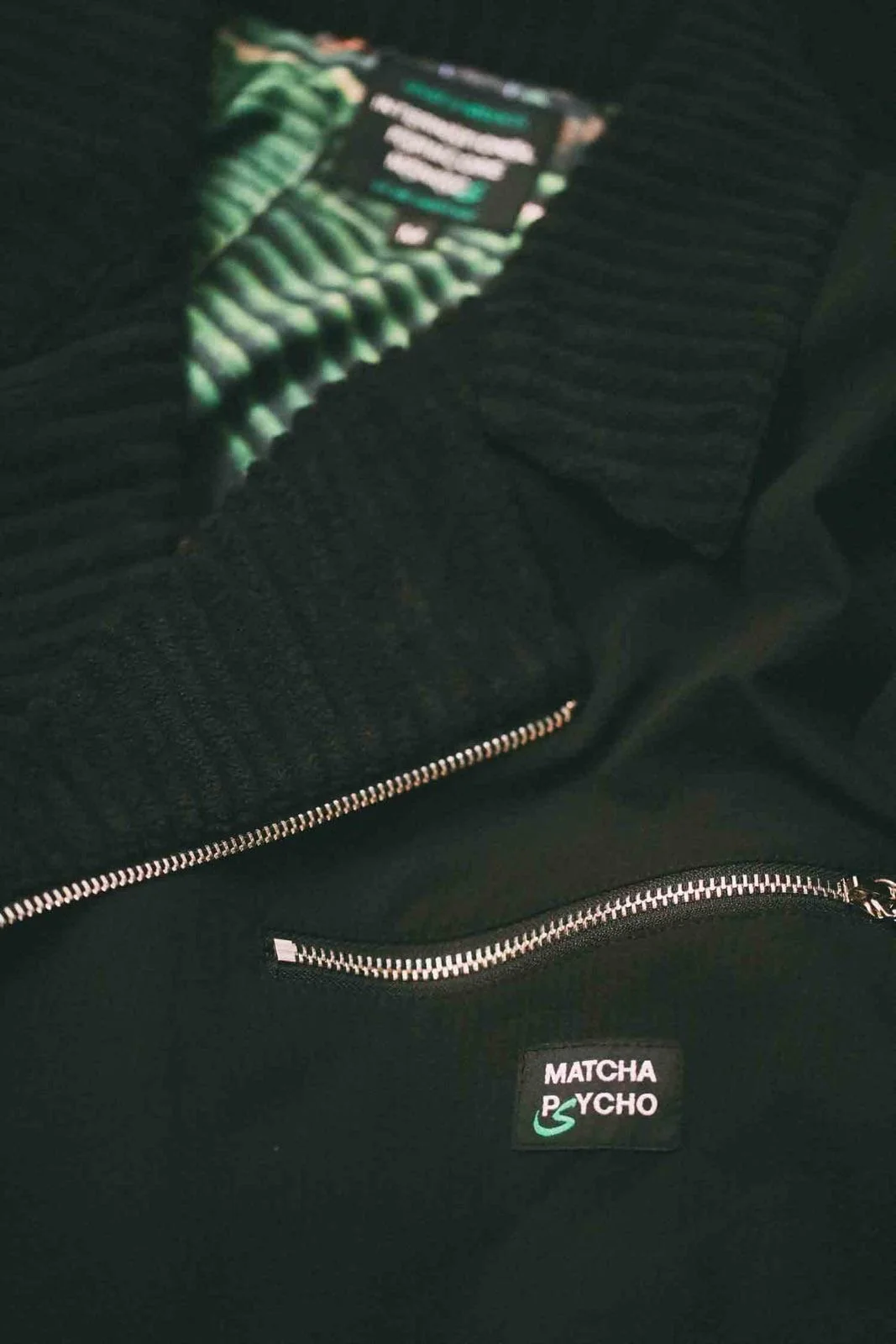
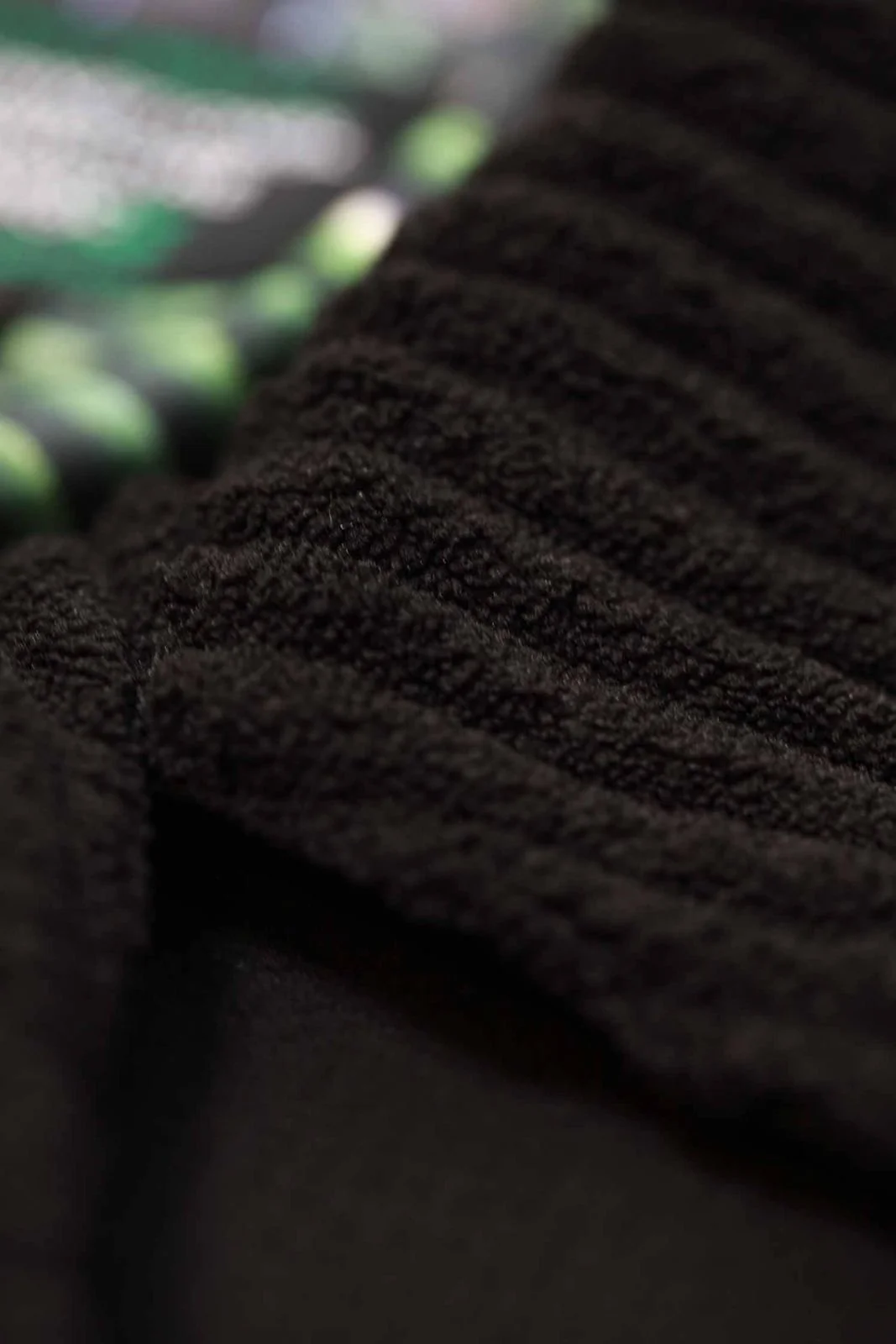
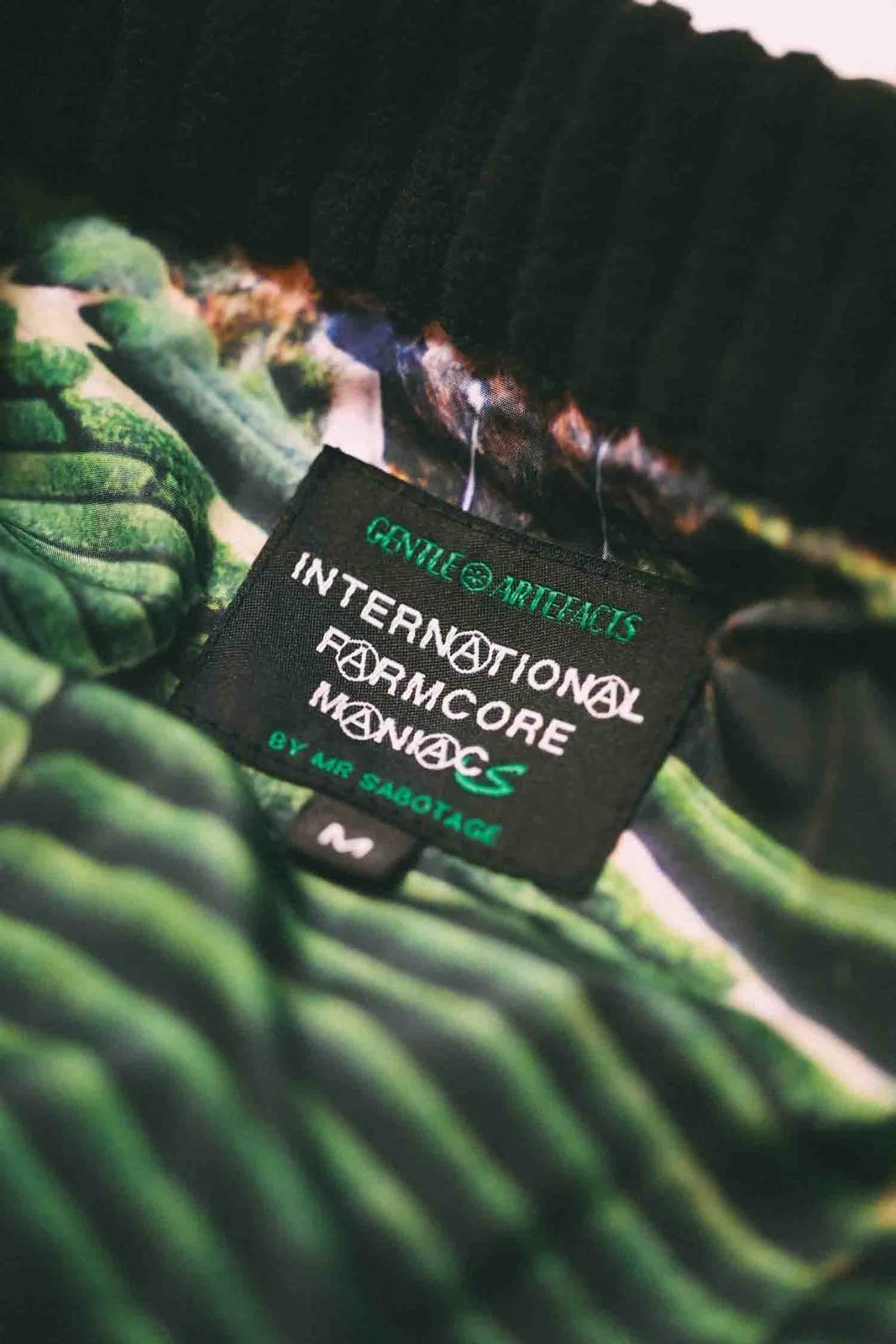
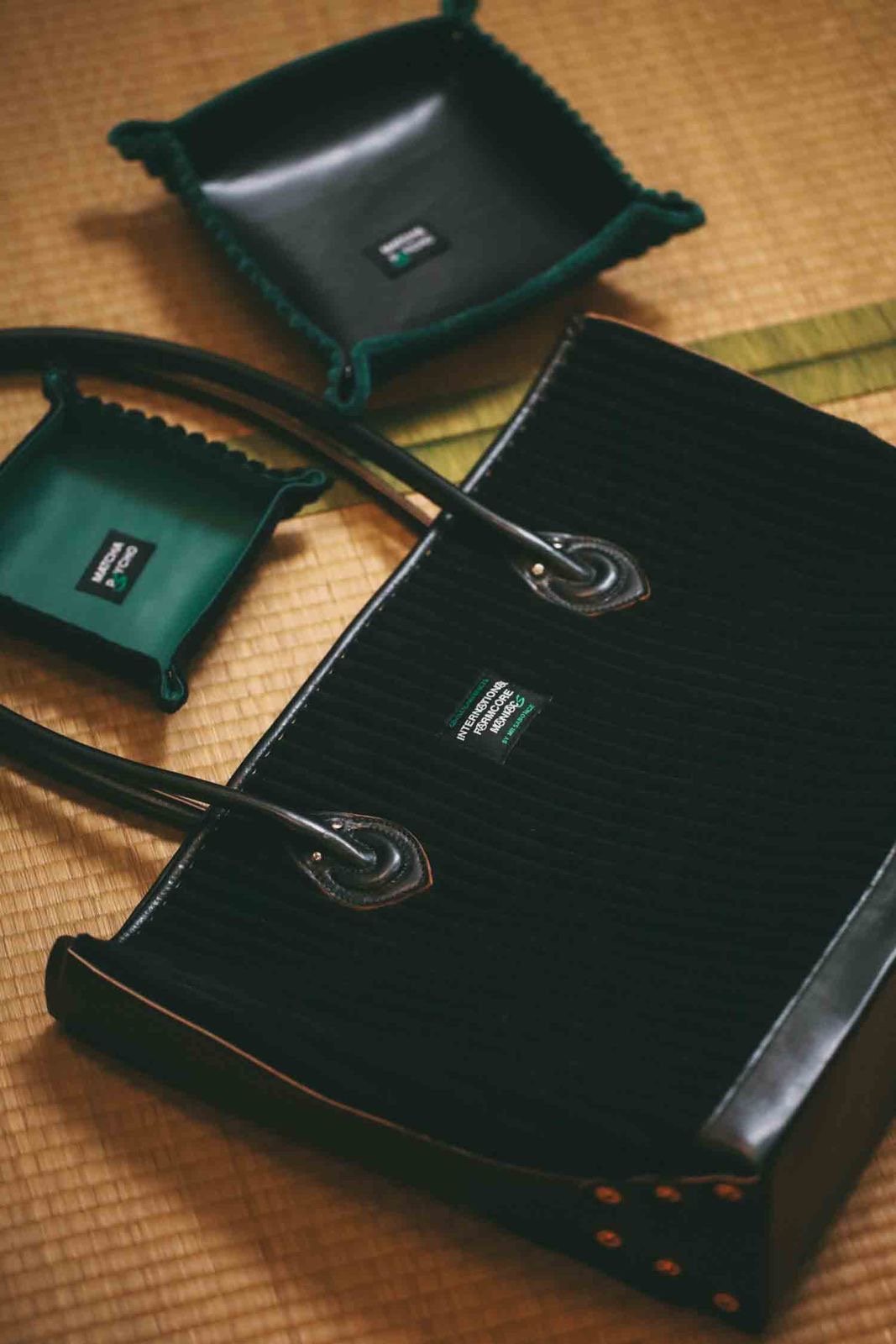
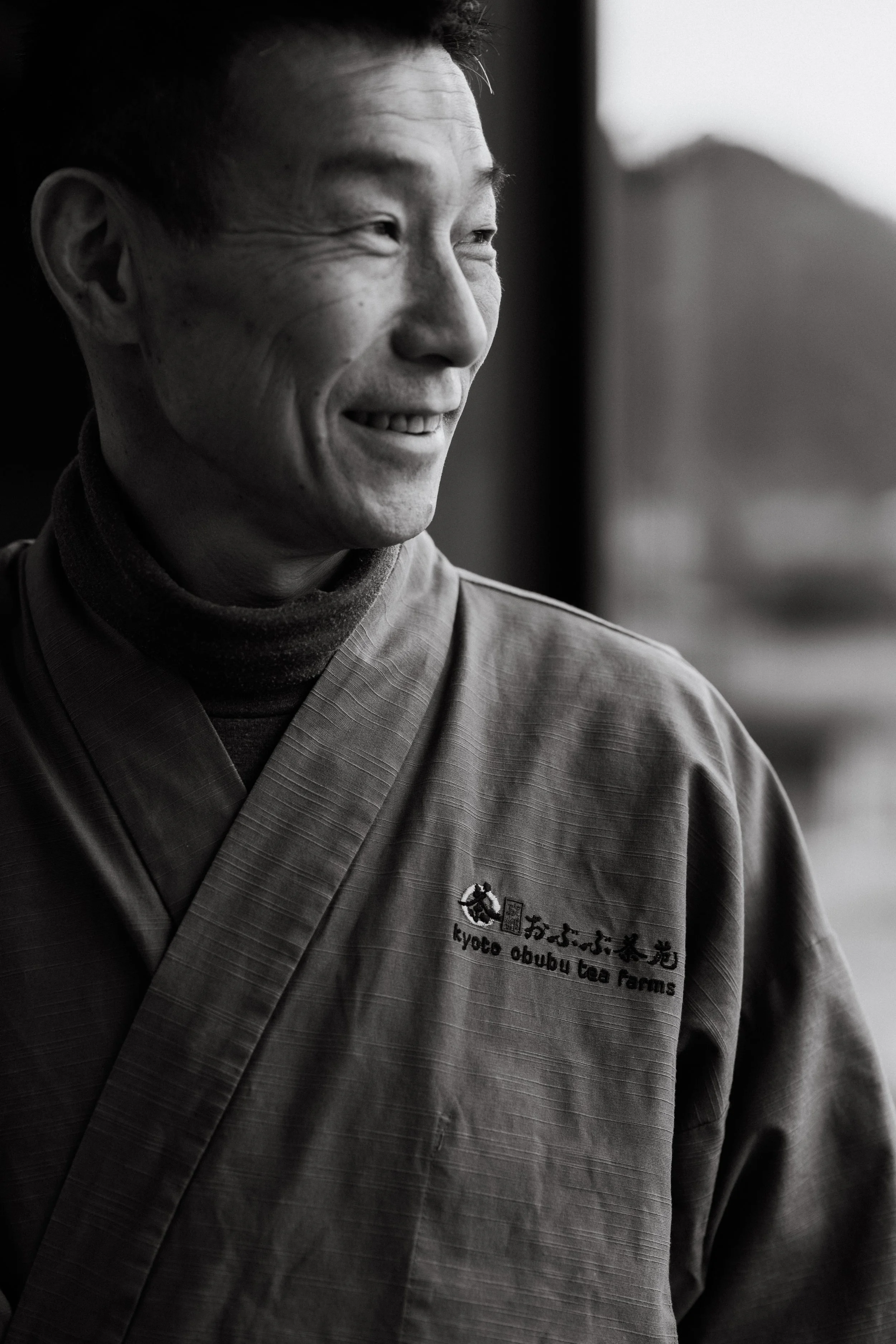
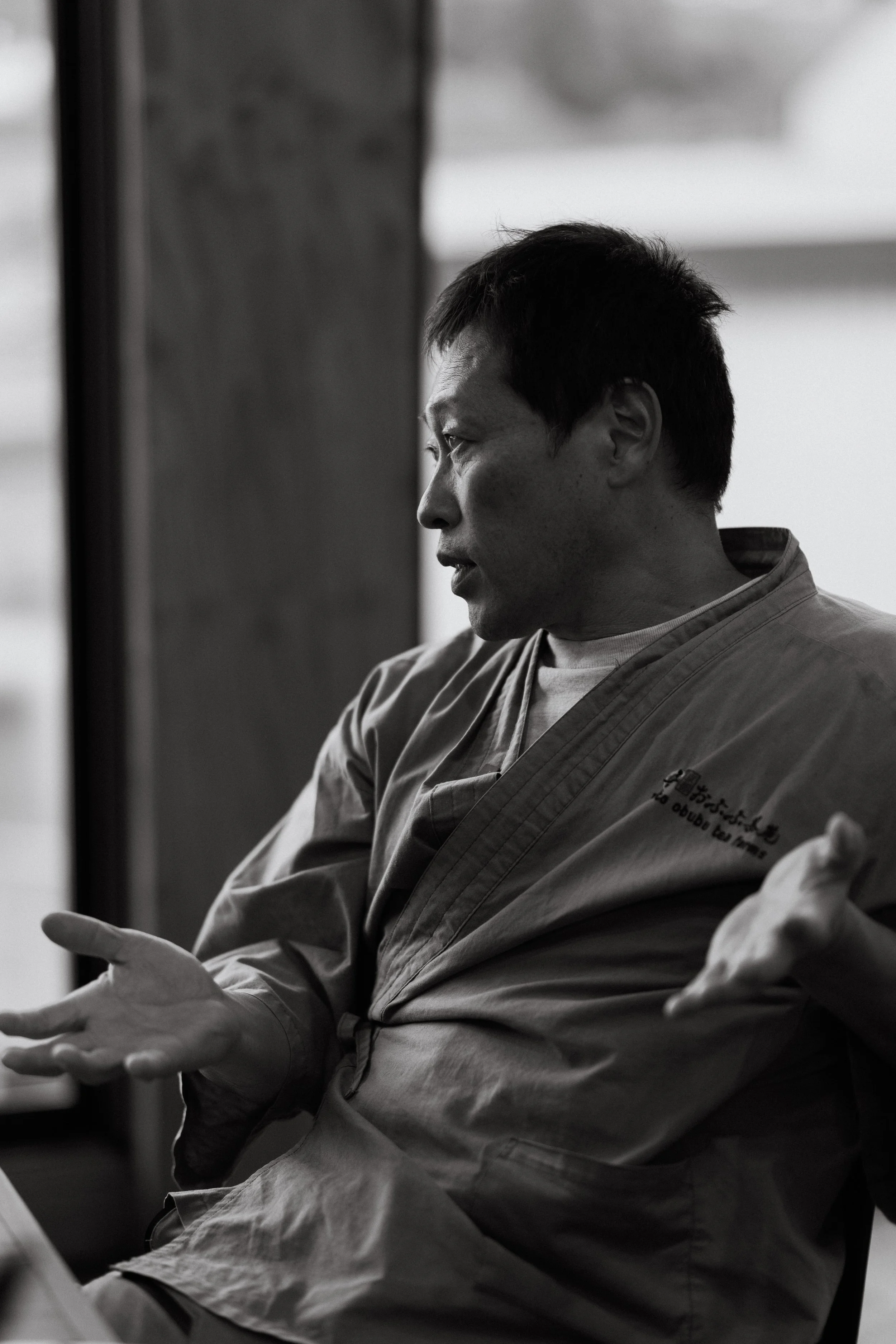
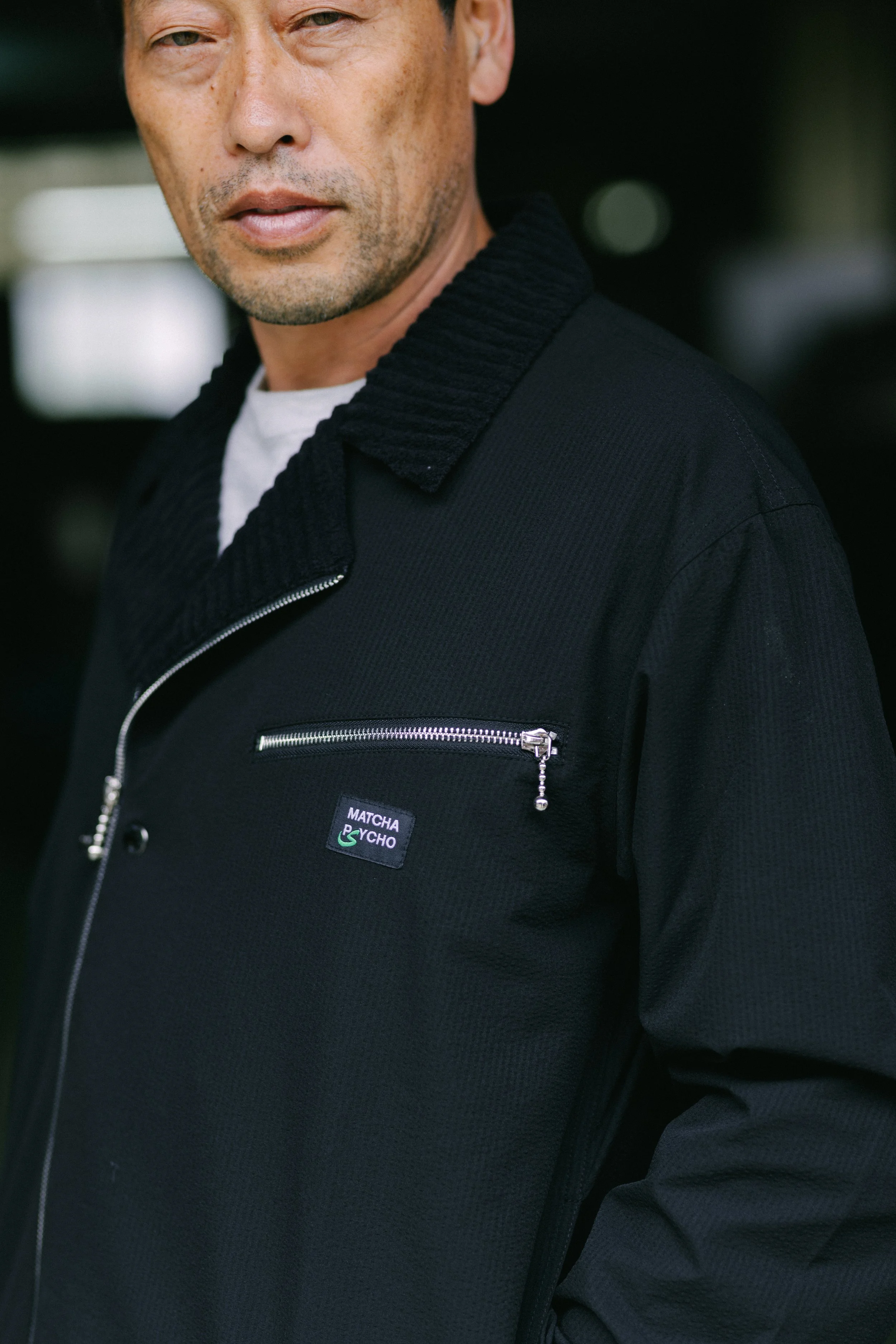
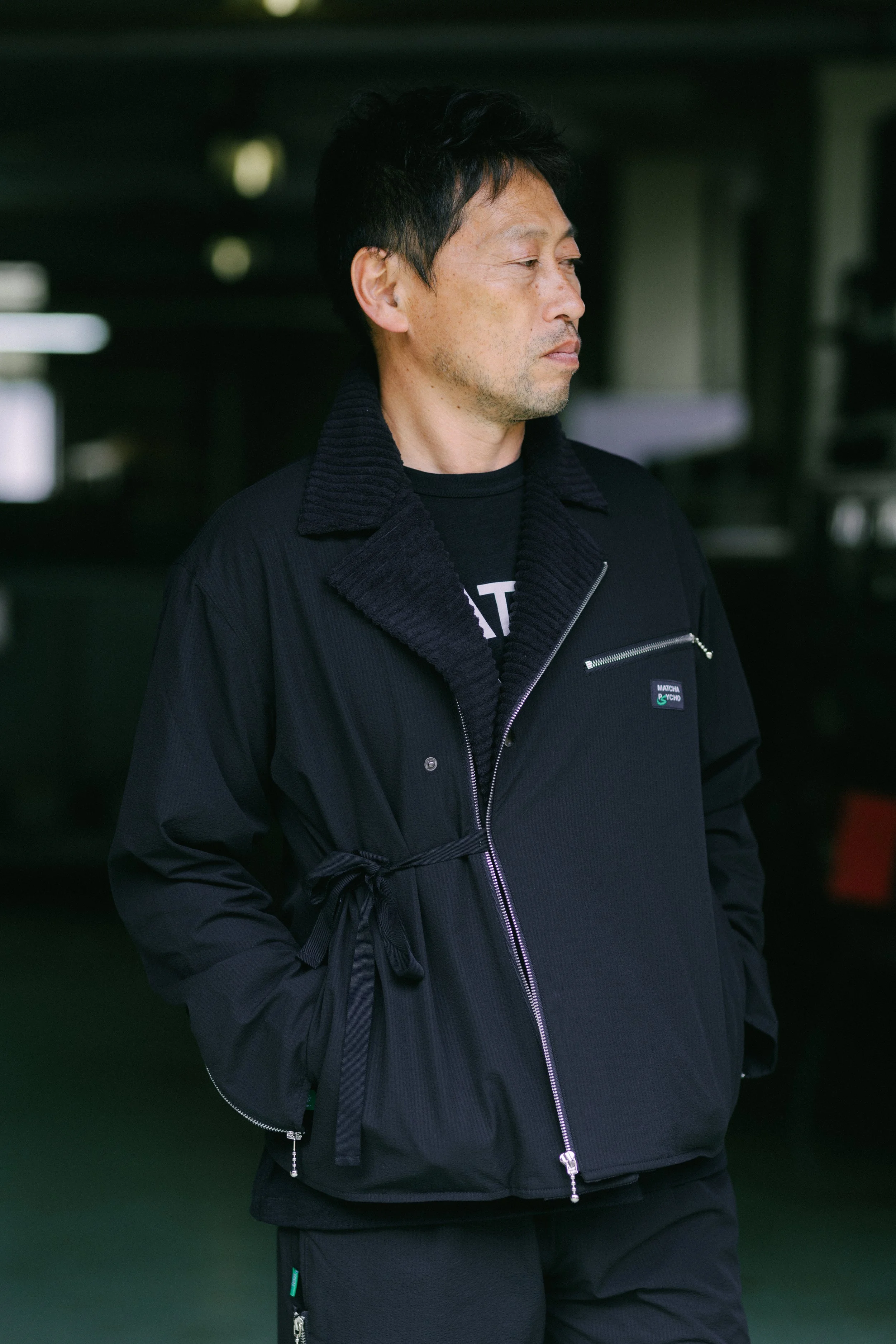
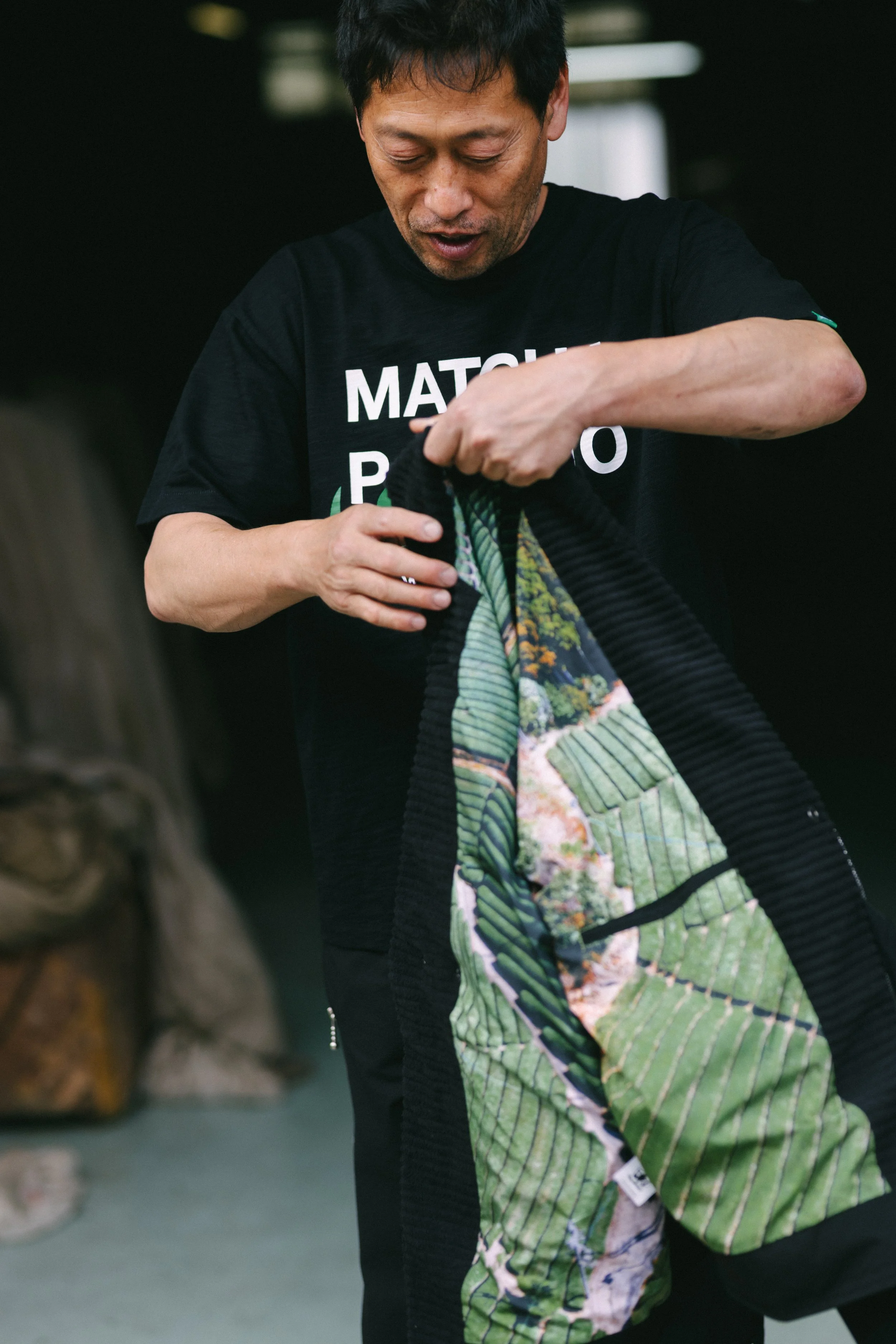
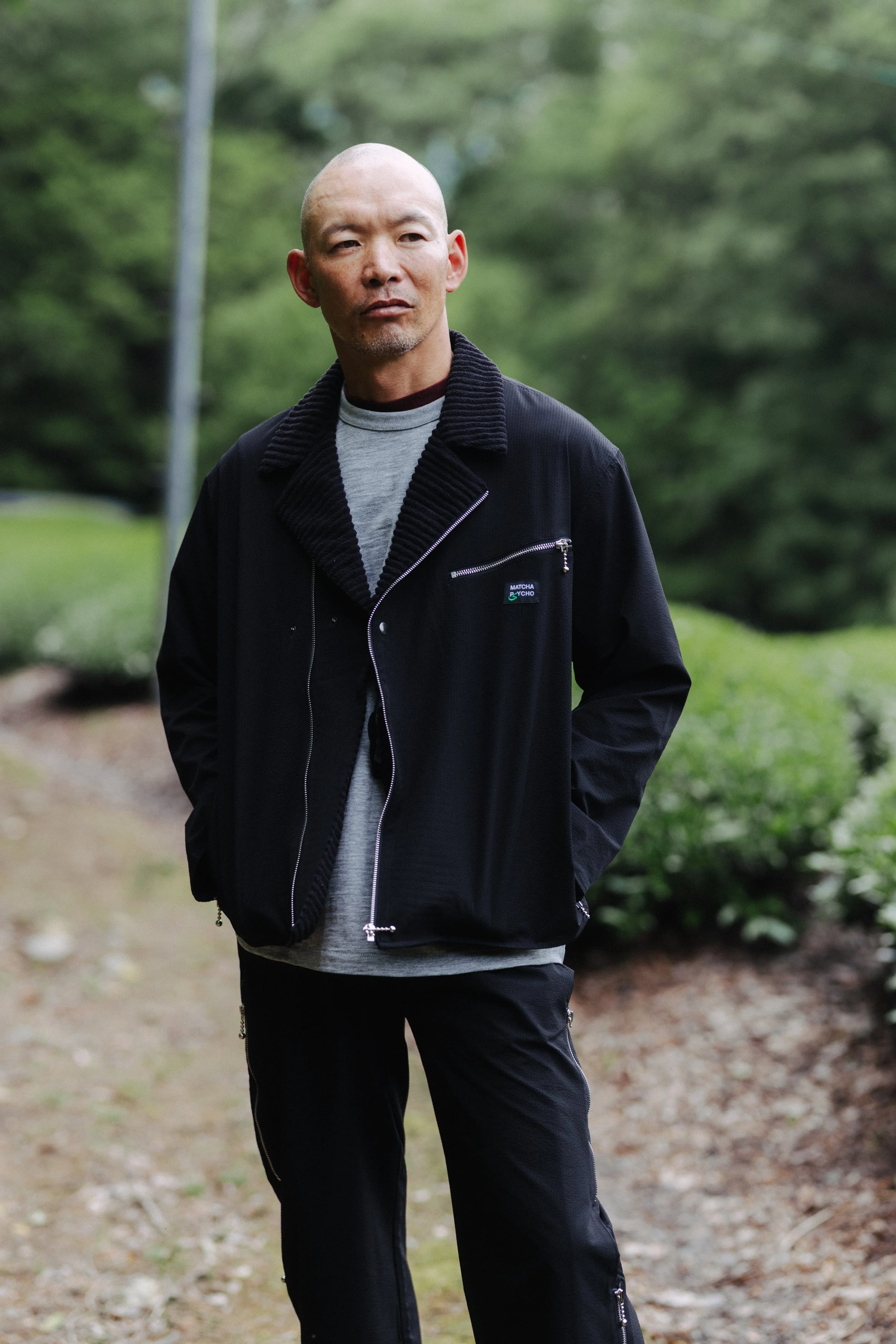
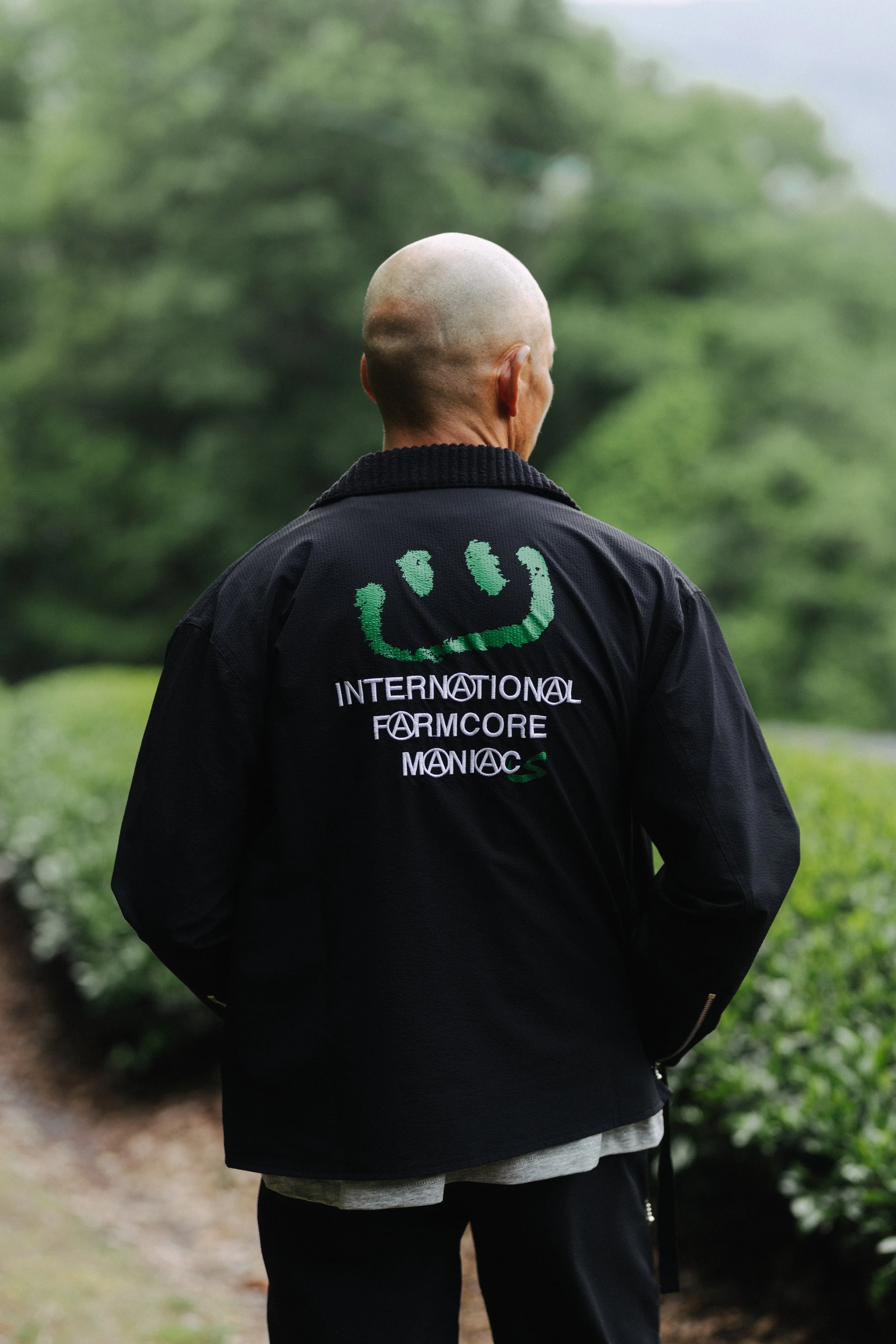
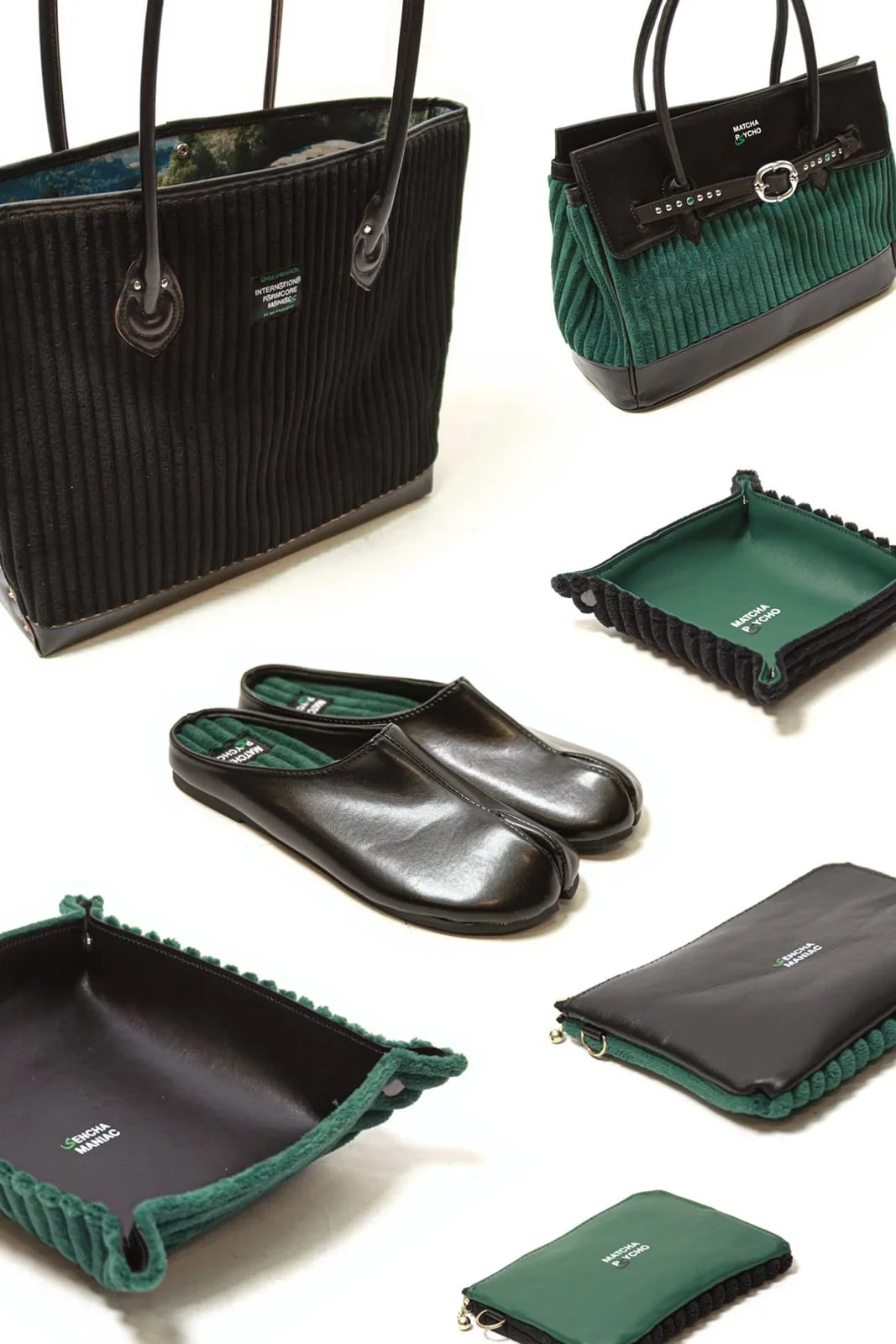

“Built for Paris; rooted in Kyoto”: Tea master and Obubu Farms co-founder Matsu-san performs a matcha ceremony in Gentle Artefacts’ Psycho/Saikō exhibition room at Paris Men’s Fashion Week (B&W photos); one month prior, in Wazuka, Kyoto, he harvests tencha for matcha, taking a break from farming to model Sabotage’s collection.
The pants follow the same logic — inspired by punk bondage pants but adapted from a farmer’s practices and for a farmer’s practical needs. Tighter silhouettes help avoid snags on the branches while working. The zips adjust width. The design is functional, but the attitude is loud.
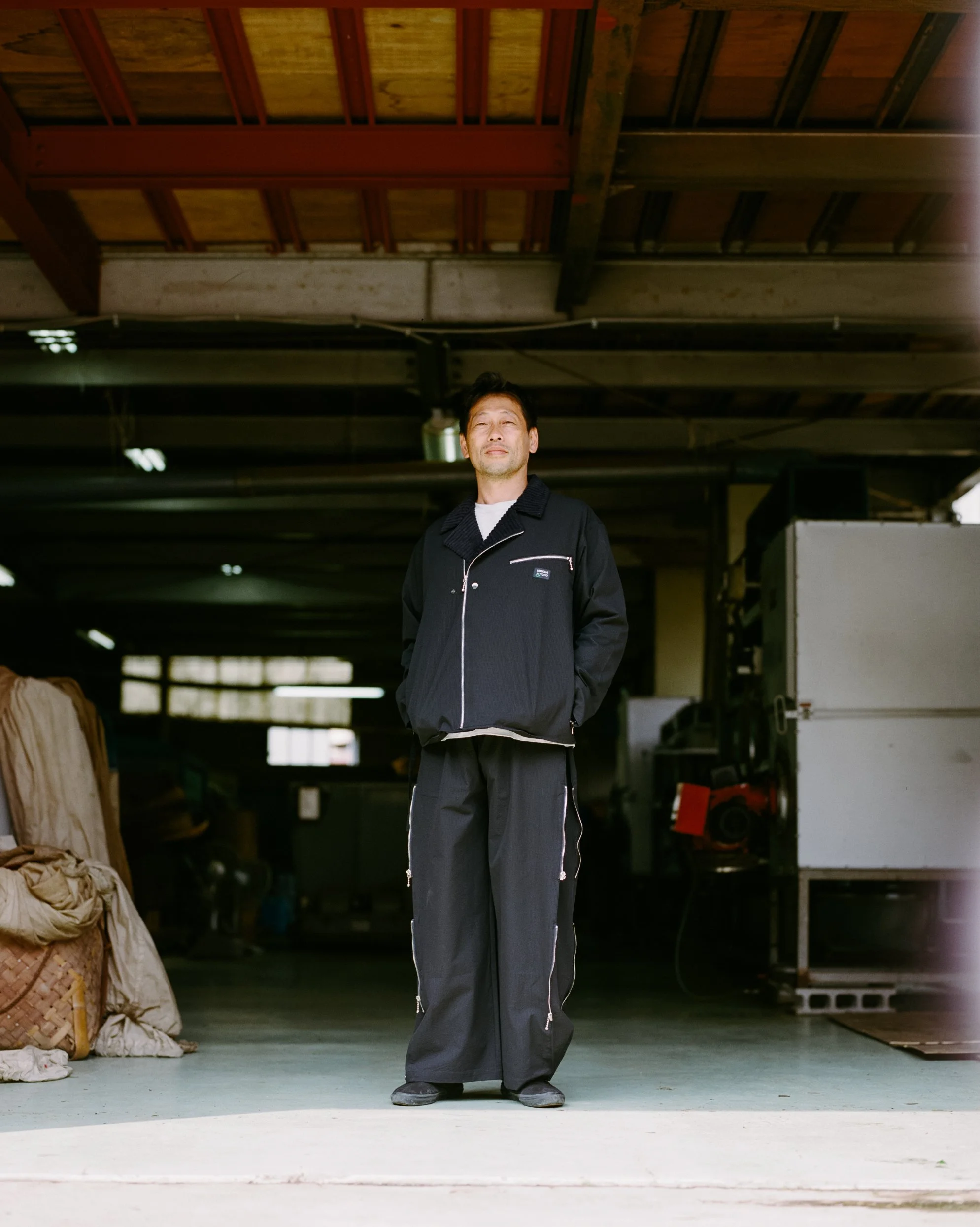
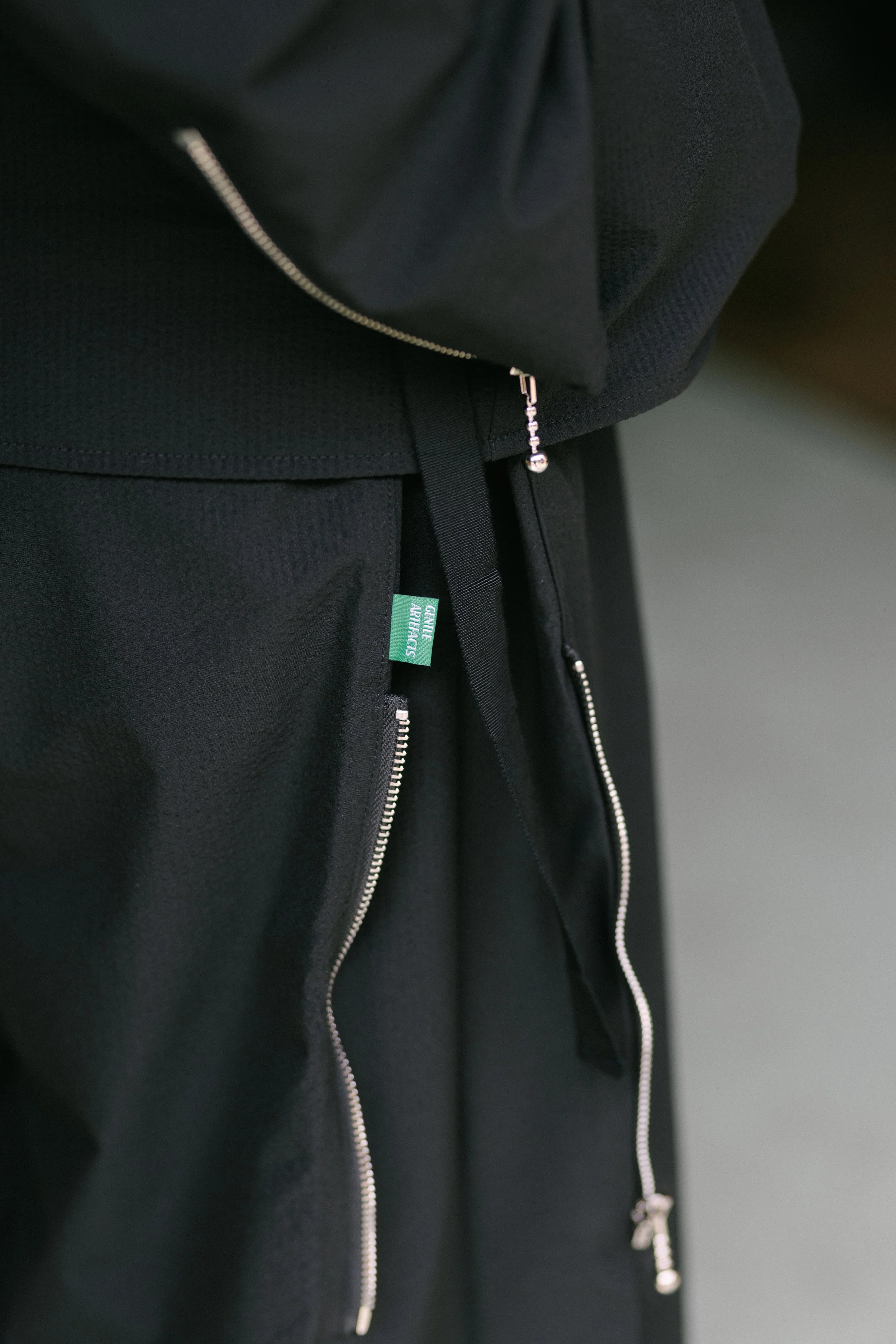
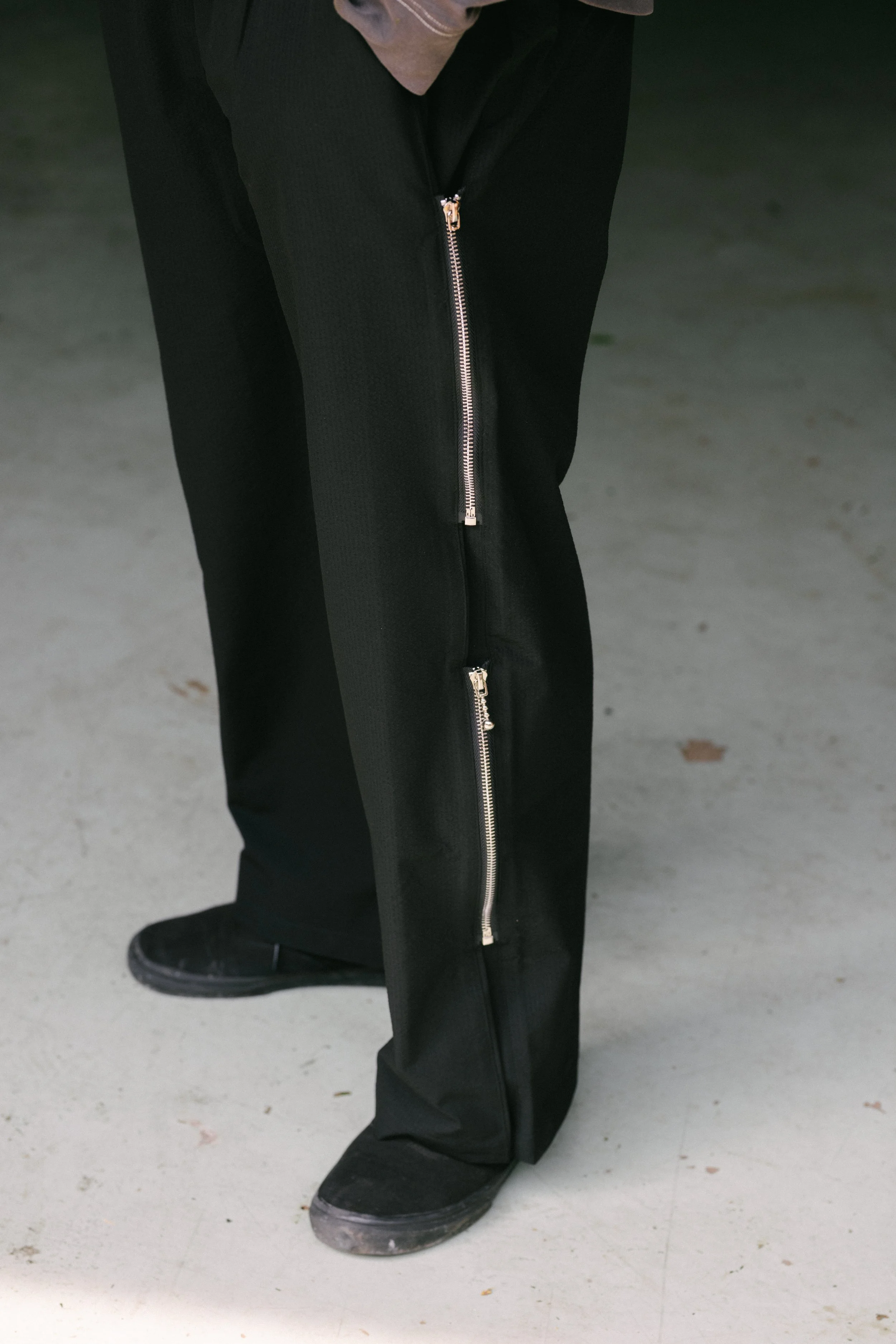
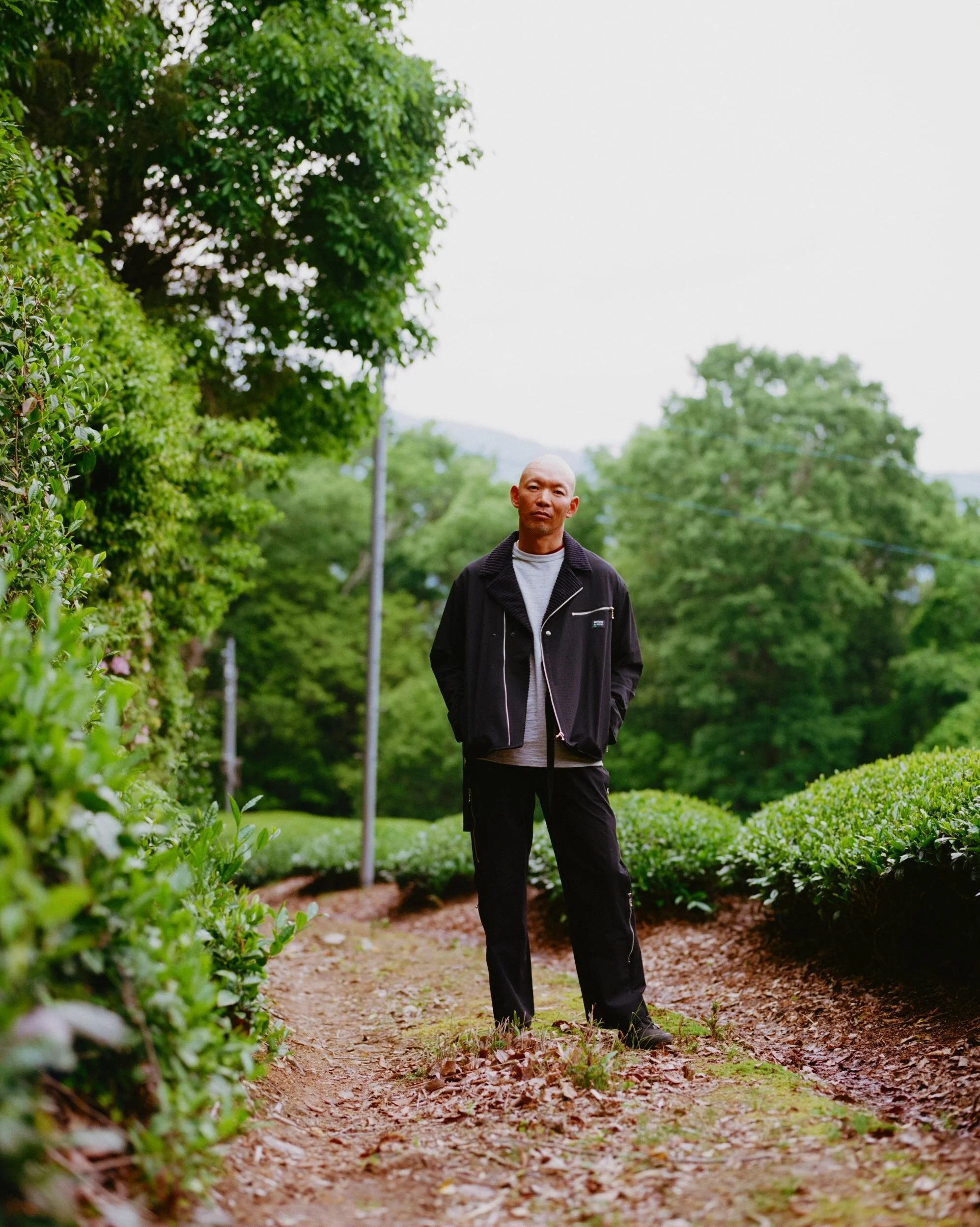
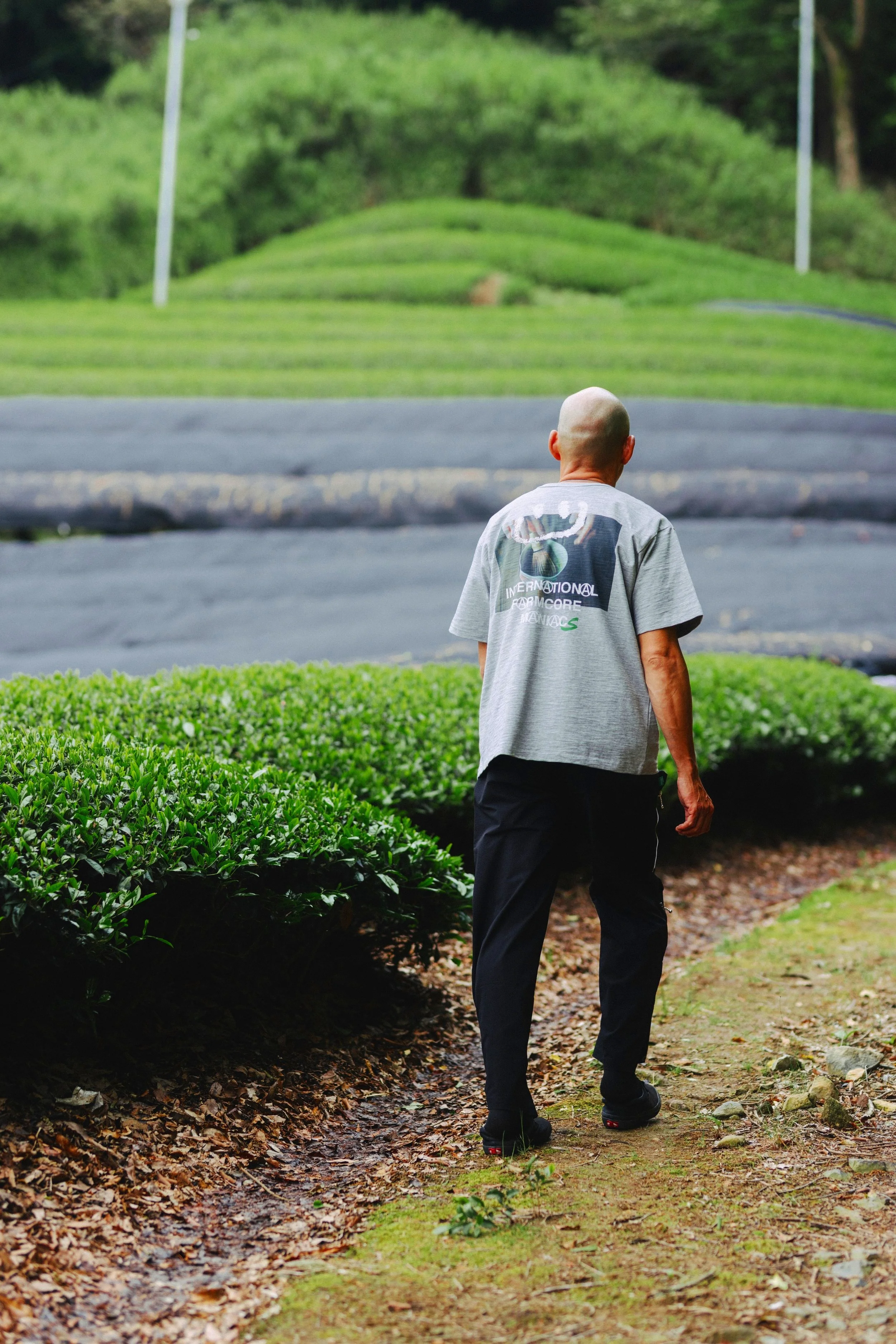
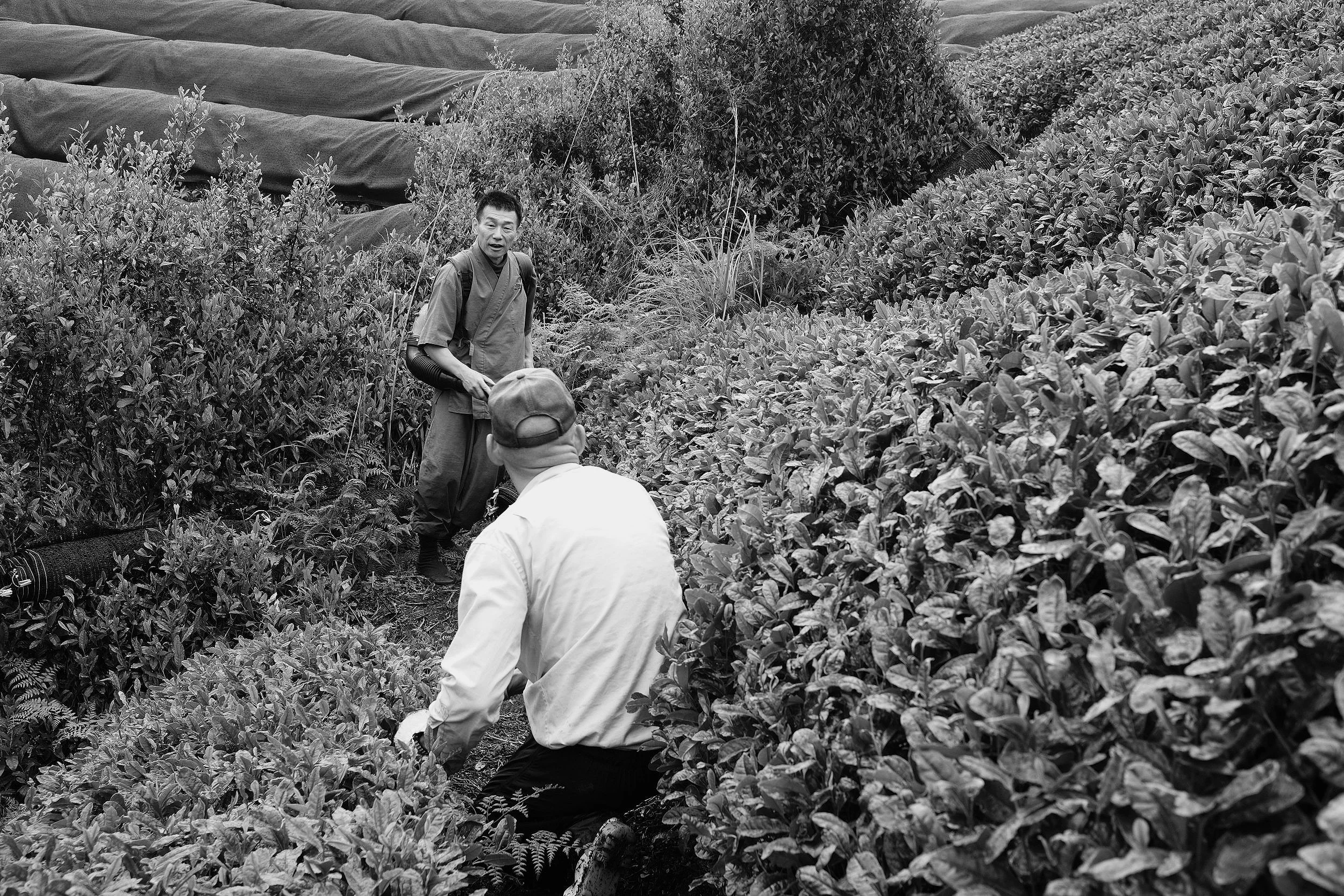
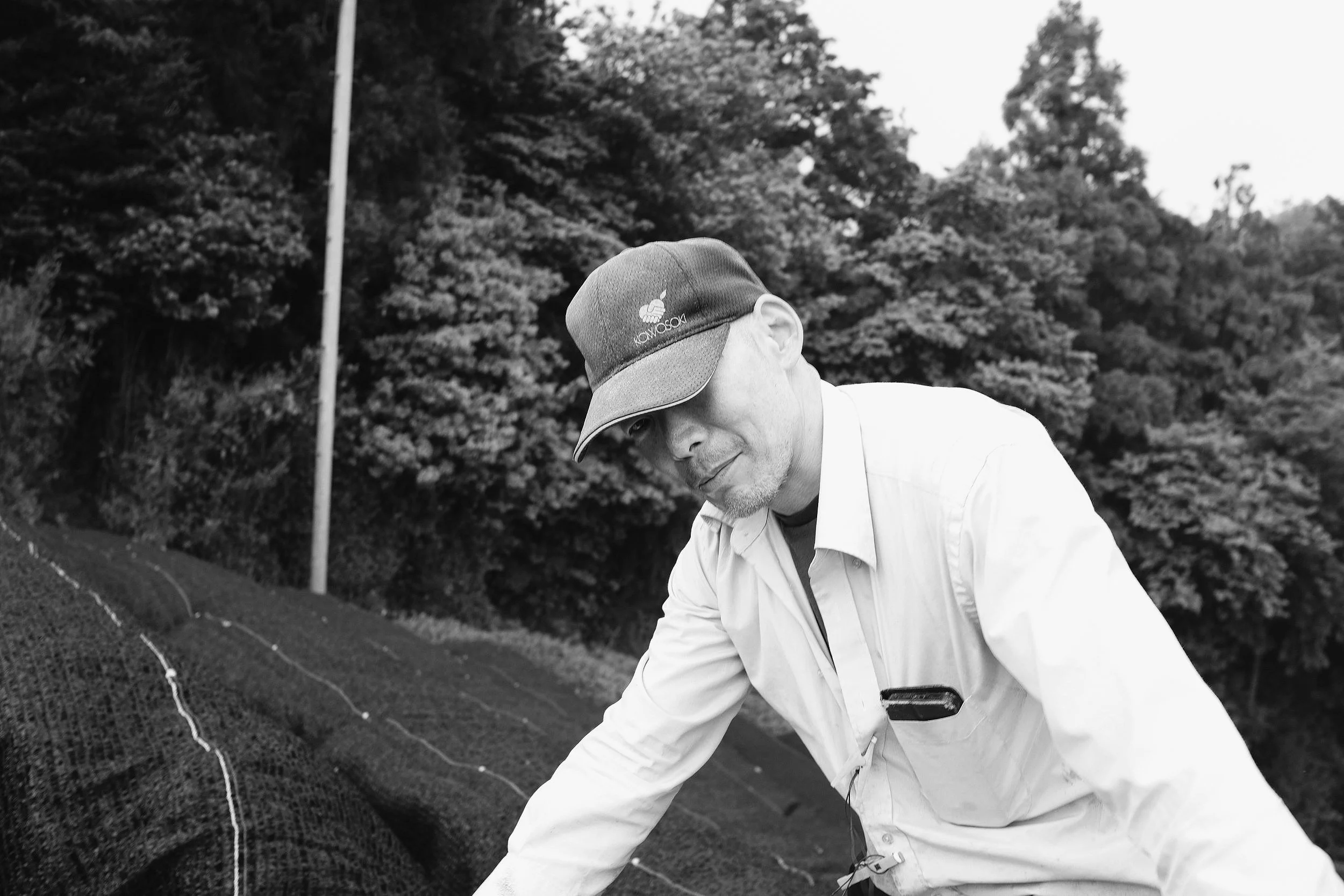

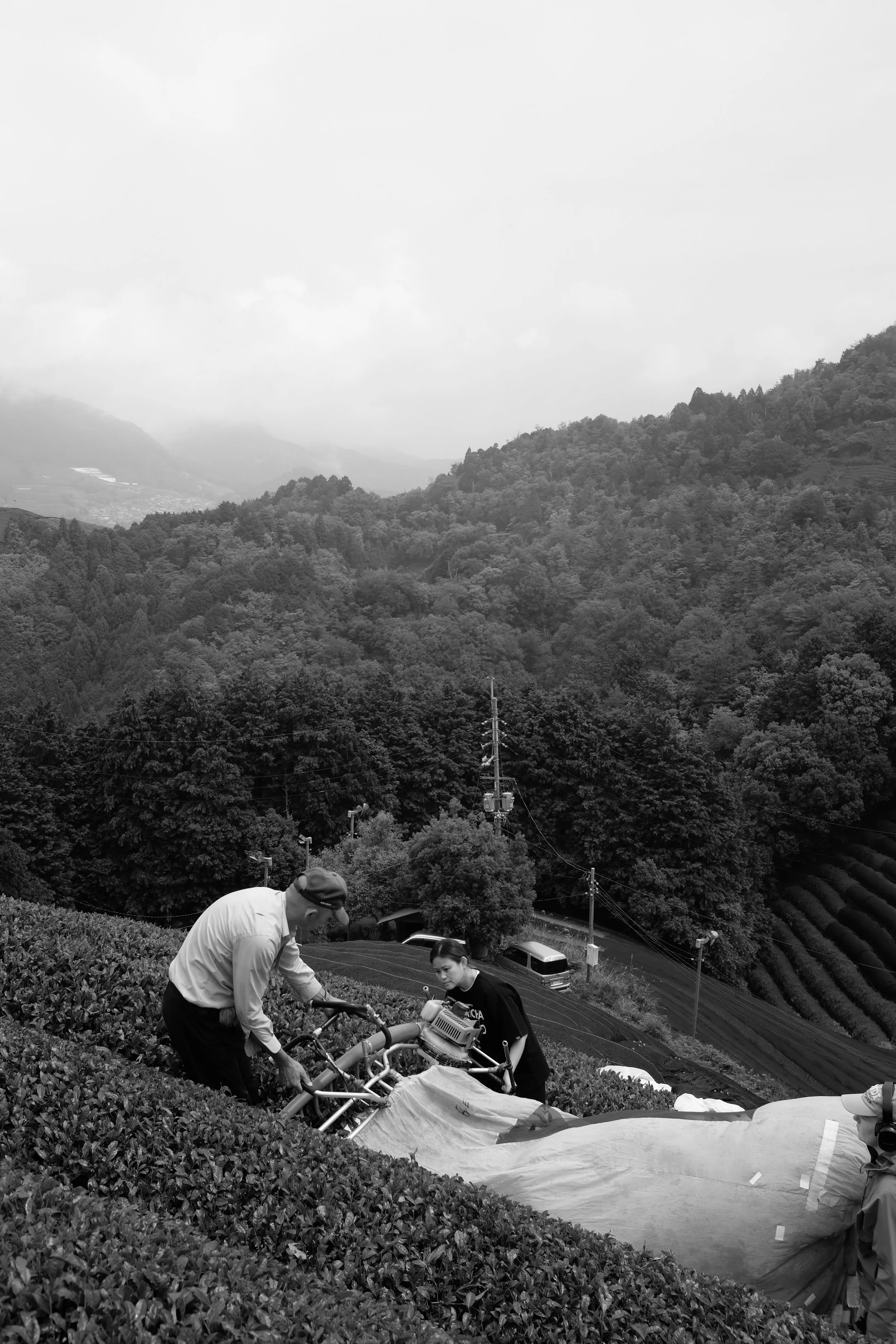

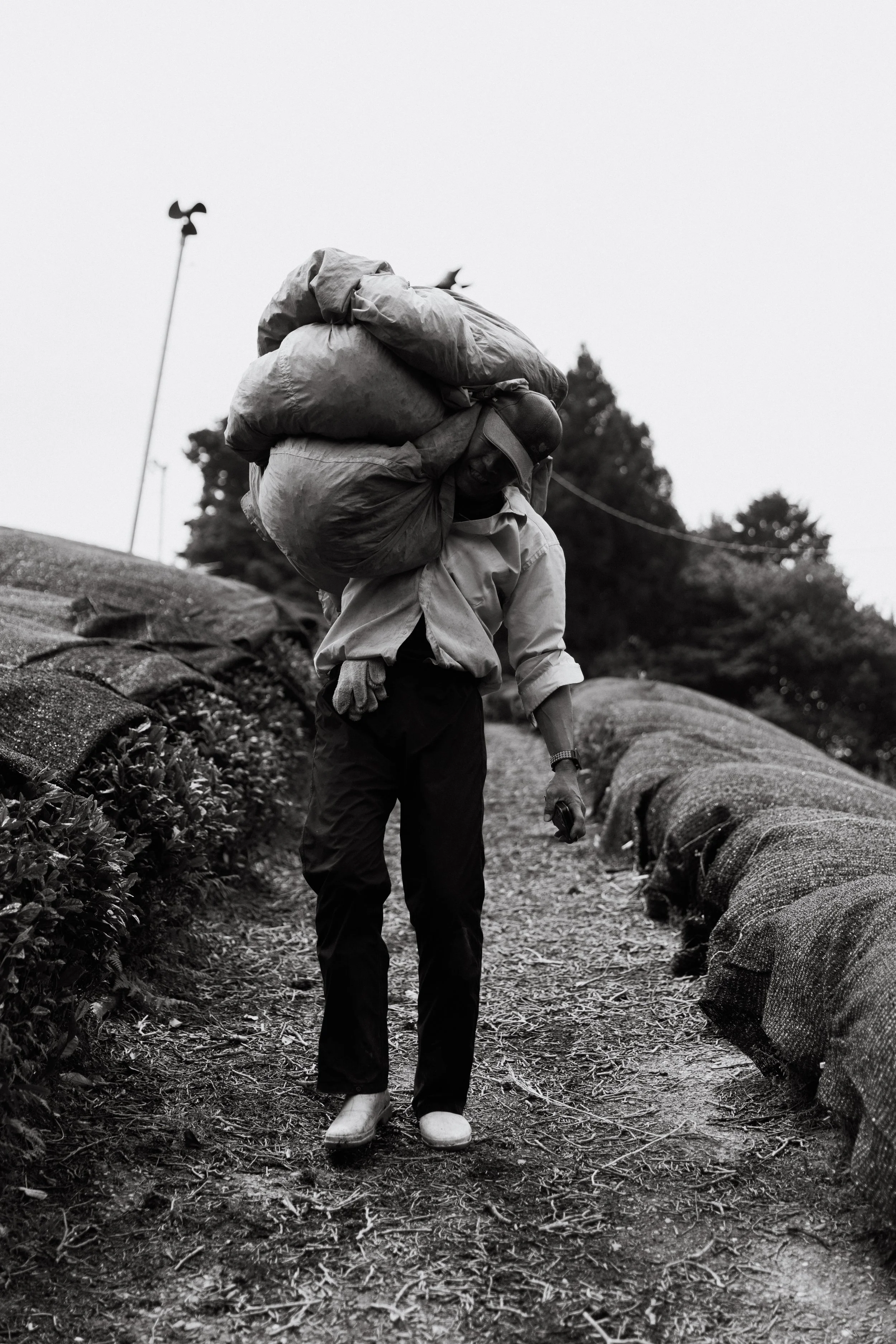
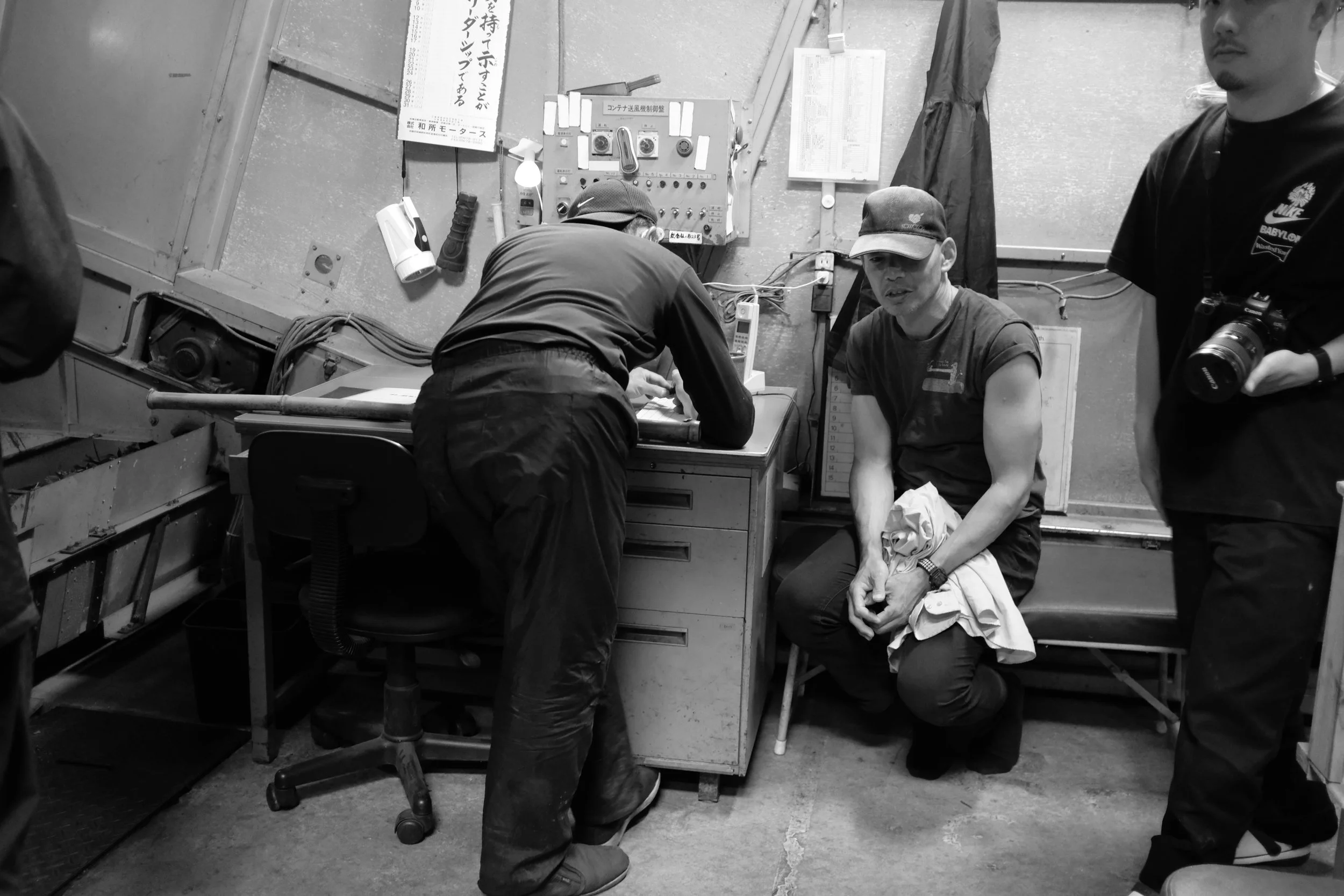
The name Matcha Psycho is a split identity — drawn from the Japanese word saikō (最高, “the best”) and twisted through the lens of obsession. That’s where Sencha Maniac comes in — a nickname for Akky, the lead farmer at Obubu. That man lives, breathes, and sweats green tea. You feel it. The title fits.
Excerpts of semi-structured interviews between Akky-san and Matsu-san of Kyoto Obubu Tea Farms and streetwear and sneaker designer Mark Ong (aka Sabotage). Led by Gentle Artefacts co-founder and anthropologist, Gabriel Coren, and conducted during fieldwork on site in Wazuka, Japan in January 2025.
Then there are the International Farmcore Maniacs — the crew of interns and assistant managers at Obubu Tea Farms who fly in from all over the world to get their hands into the dirt and directly experience tea farming in Kyoto prefecture today. They work the fields with discipline and heart. The phrase might sound chaotic, but in Wazuka, it’s community.
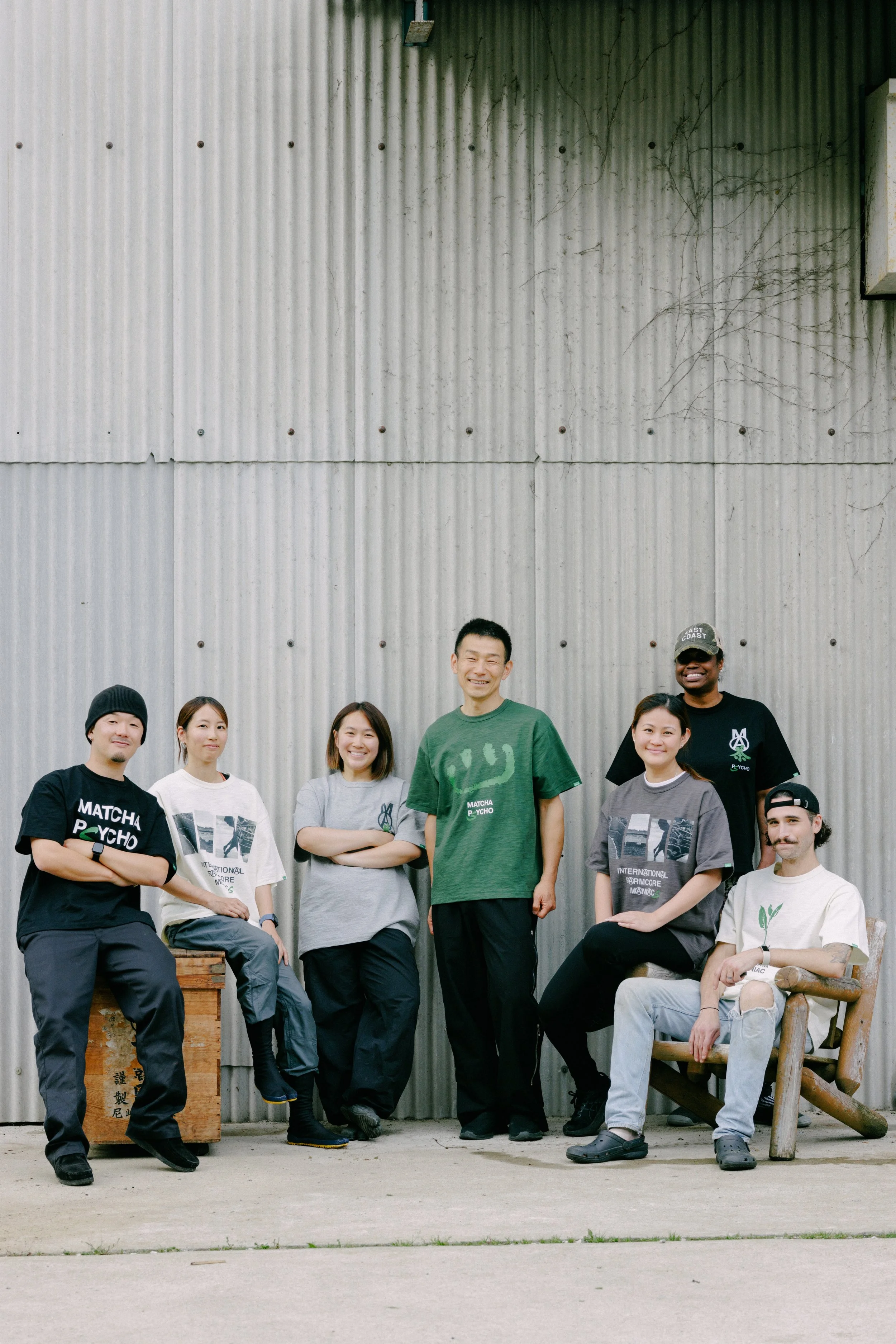
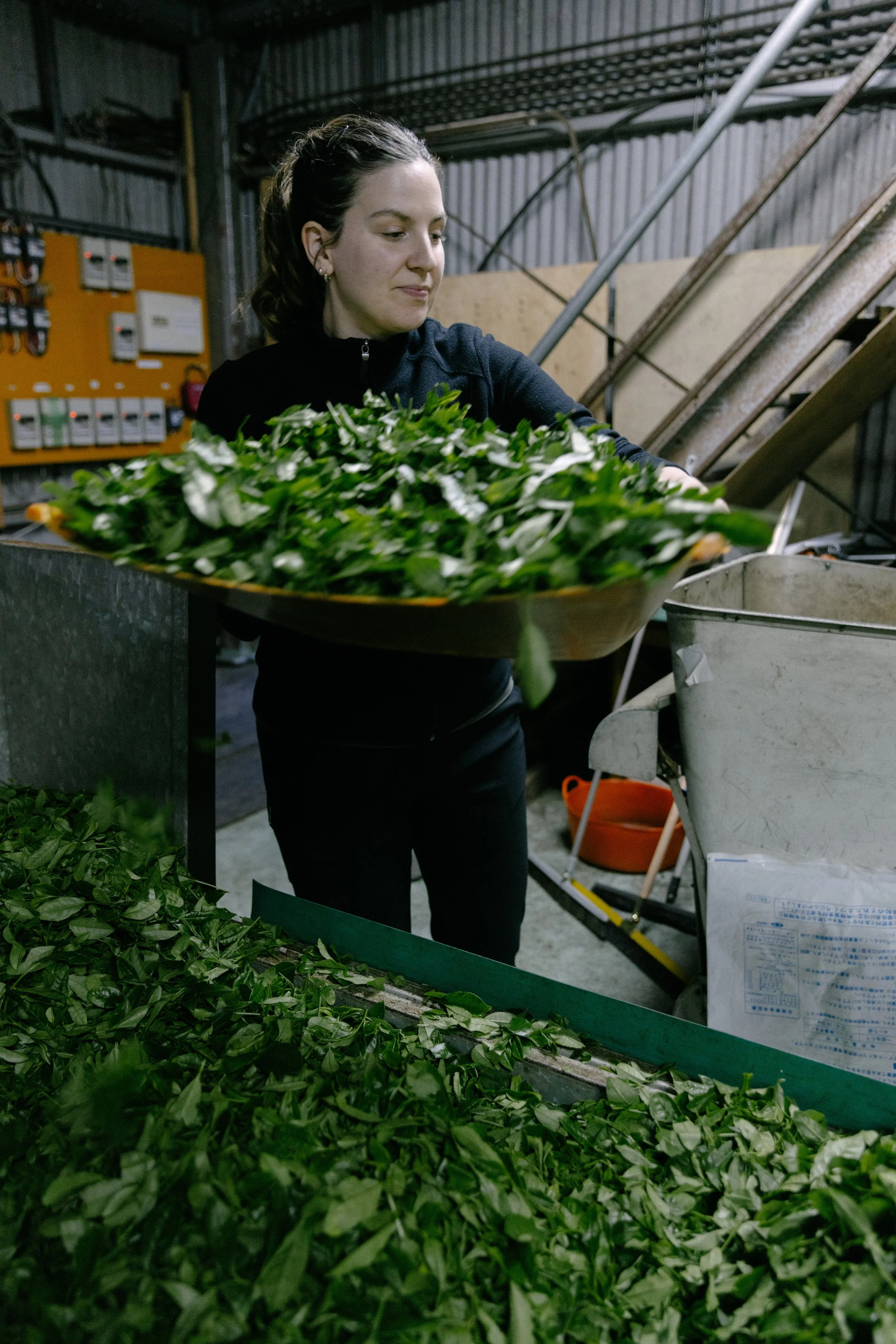
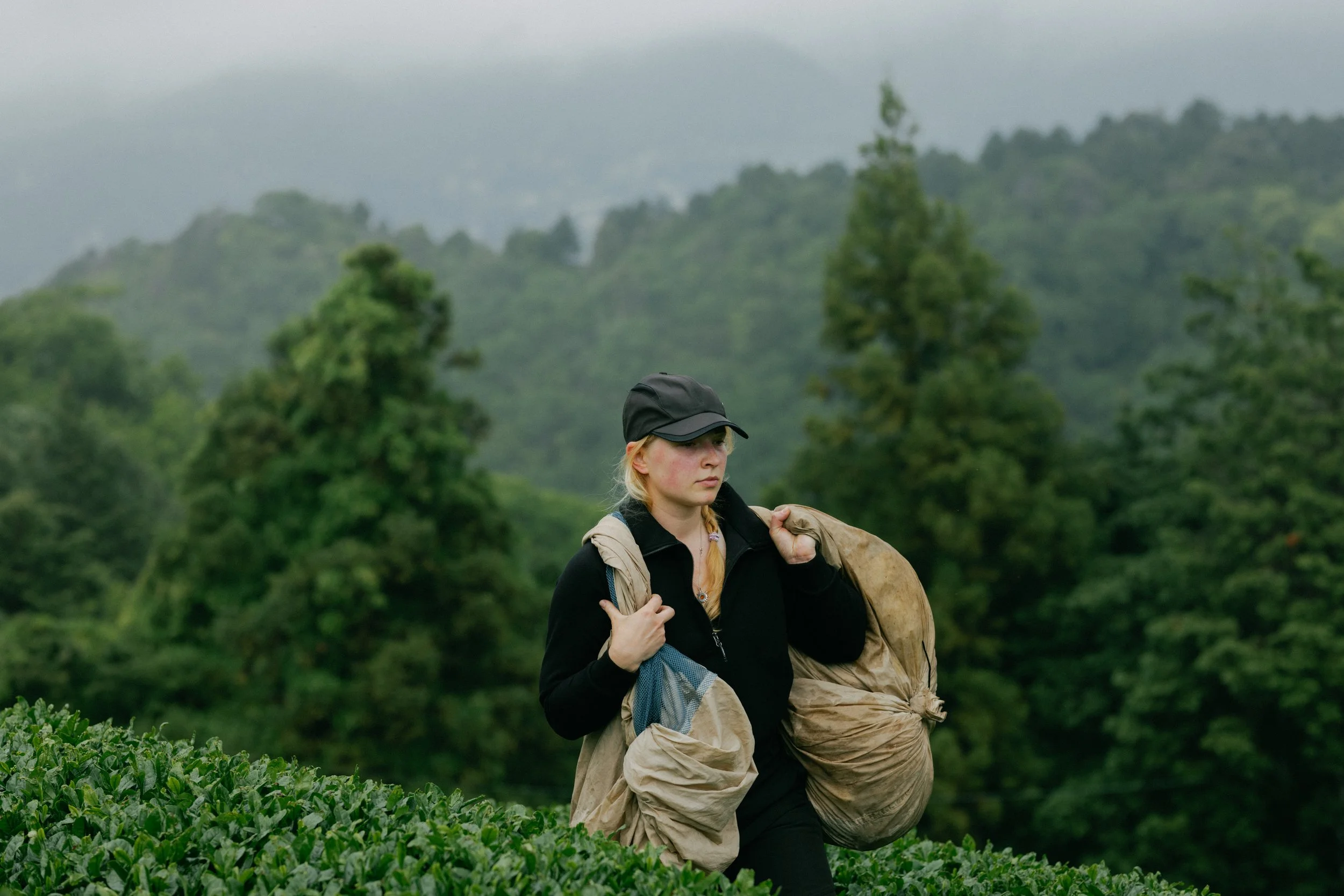
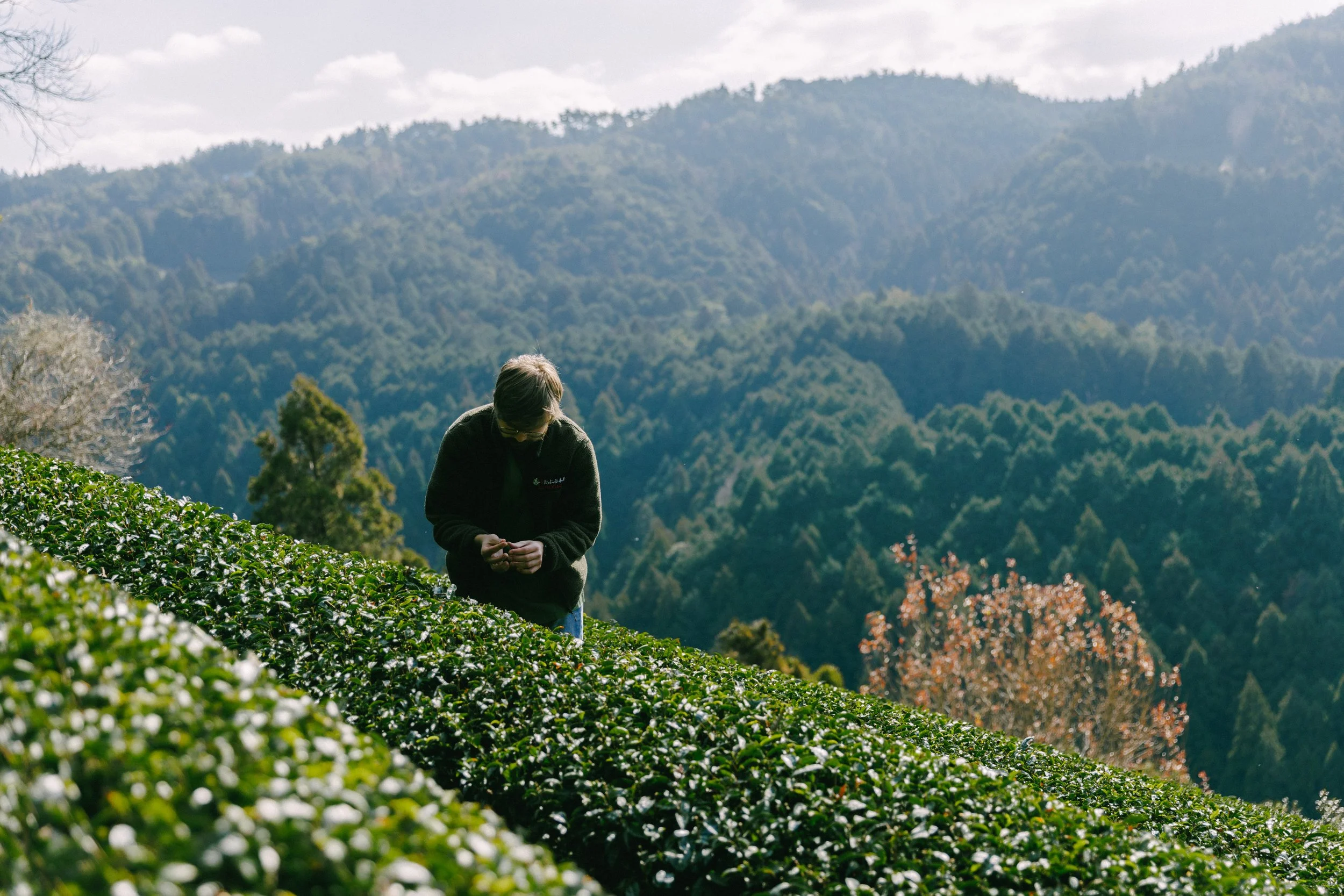
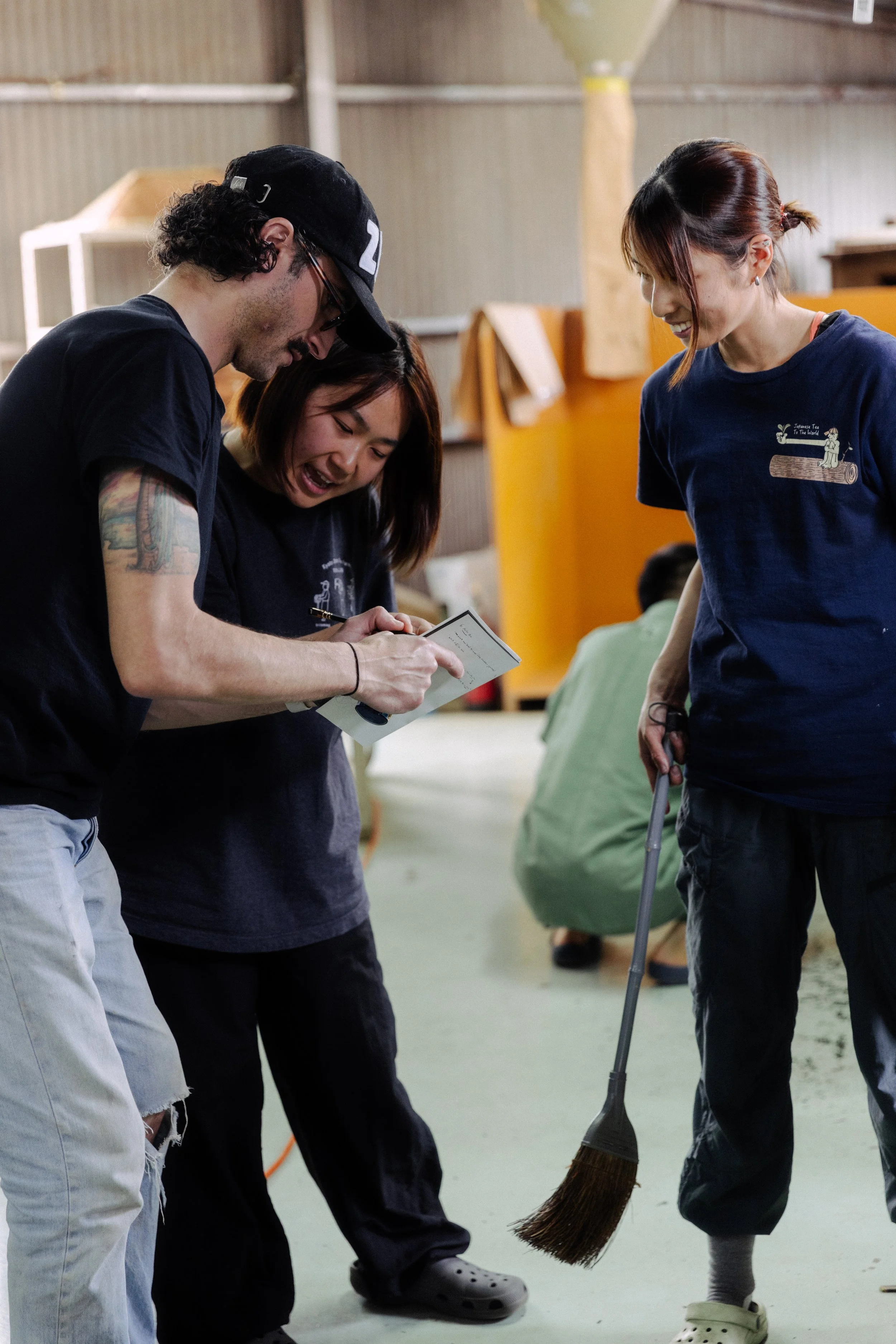
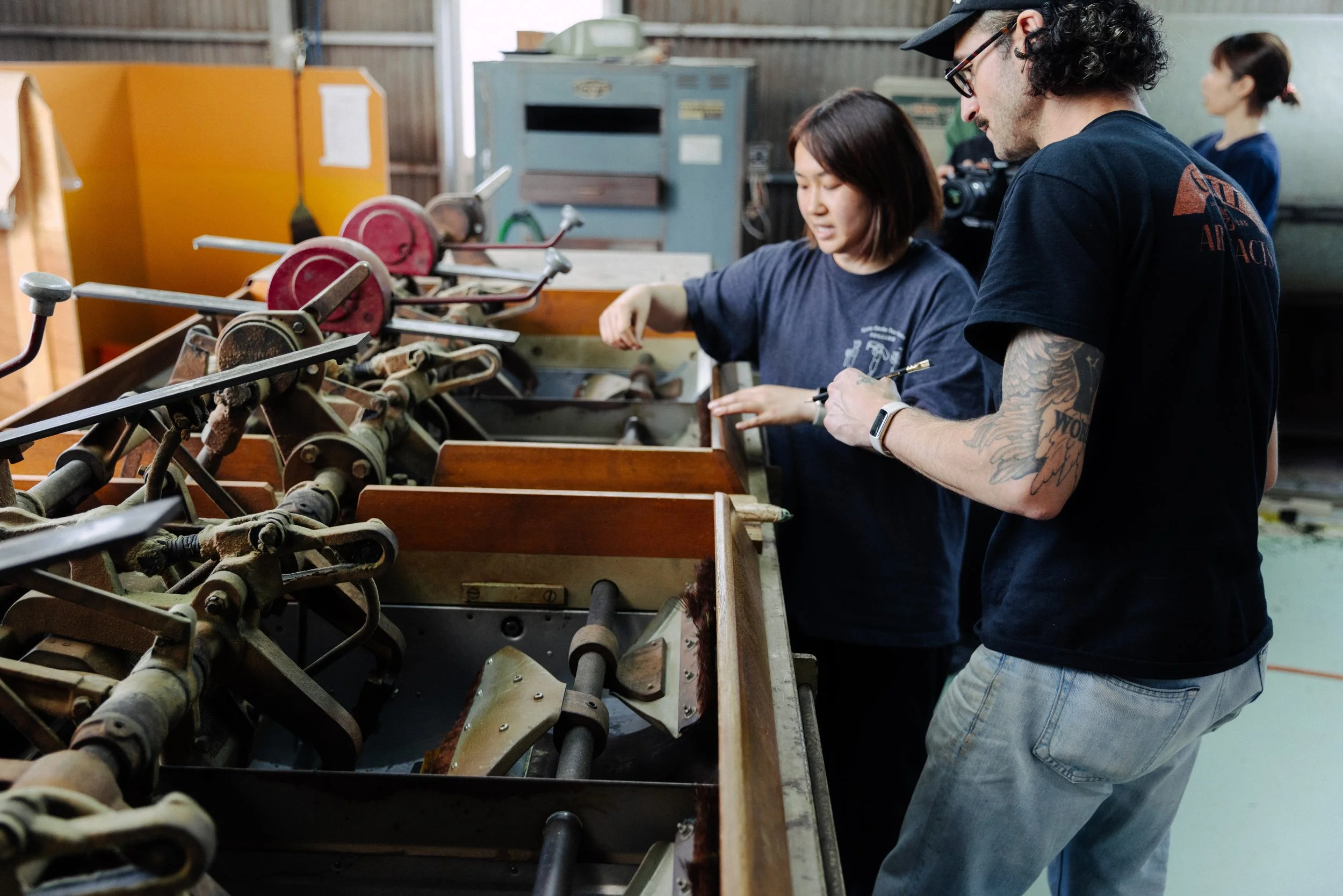


And then there’s the smiley emblem. It wasn’t planned. It was left on a machine by someone operating a sandblaster — a small act of rebellion or joy, etched into rust. It caught my eye in the tea processing factory on site at Obubu Farms, and it became a symbol. A ghost signature. The idea that even through the manual labor of agricultural work unfolding in industrial workspaces, you can leave behind a piece of yourself. And someone else might come along and notice your mark.
Inside the jacket, Takeshi Hayakawa’s drone shot of the high mountain tea fields — the photograph that started this whole thing — is printed as the lining. That image transforms the piece into more than outerwear. The garment becomes memory. Place-making. Environment. Reflection.
Matcha Psycho/Saikō isn’t just a collection. It’s a series of wearable postcards from Wazuka, Japan — a hyper local place where labor is spiritual, community is global, and the best ideas come from quiet observations and emerge amidst encounters in the field.
– SBTG
Editorial:Wearable Postcards from Wazuka
Sabotage X Gentle Artefacts Matcha Psycho/Saikō capsule collection
Conceived and designed by Mark Ong
Photography by Takeshi Hayakawa
xxx






